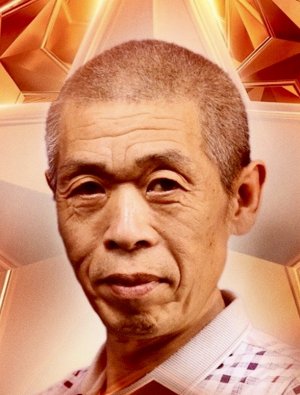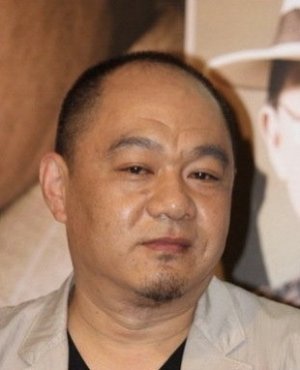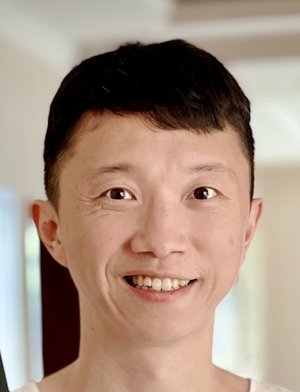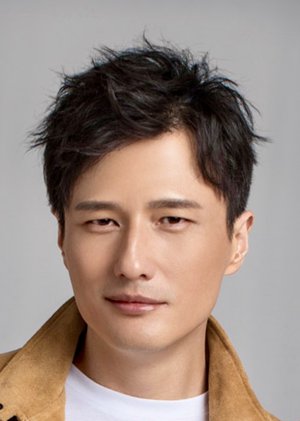ESCAPE FROM THE TRIANGULAR SLOPES companion piece
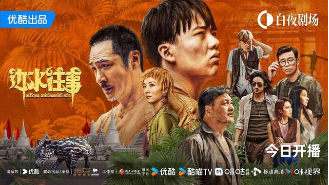
Table of contentsEach title is linked to relevant section (click on them to find them directly) ---[*] scroll down from position, if the algorithm does not get directly to item.
Sources : MDL, Sohu, Baidu, Weibo, Wikipedia and other articles. (highlighted texts lead to sources ; pictures lead to their source or further information, or are my screenshots from the drama.) To view the list of my other drama companion pieces (with links to them), check : HERE. |
Completed Sept. 4, 2024
1. General information |
Chinese title : 边水往事
- Biān shuǐ wǎngshì [*]
- English title : Escape from the Triangular Slopes
- 2024 web TV series - 21 episodes, 60 minutes each
Crew and author:
He directed 5 dramas and a movie since 2016:
He is a graduate from the Animation School of Beijing Film Academy. Also did screenwriting for several of the above dramas.
Cuī Xiǎoxuě is a young screenwriter and author who won a prize at the 9th "Young Screenwriter Support Program", awarded on November 15, 2018, at the Literature Department of Beijing Film Academy, for 《因为是她所以没关系吗》(Doesn't it matter because it's her?). There is not much more info about him. | "Escape from the Trilateral Slopes" was produced by Alibaba (Beijing) Software Services Co., Ltd., Chengdu Xuanying Alchemy Film Co., Ltd., Beijing Standard Image Culture Communication Co., Ltd., Beijing Standard Image Culture Communication Co., Ltd
In March 2009, Shen Xingxing who was only 17 years old at the time, landed in Phnom Penh and became a truck driver delivering fake goods to drug dealers in Myanmar. This job is called "bianshui" locally. For 397 days, he lived with drug dealers, gamblers, and gangsters. Before this, he had never thought that the real world was so bad. After witnessing his friend being shot [...], Shen Xingxing decided to flee back to China overnight and surrender, and assisted the police in cracking down on drug trafficking that had been entrenched in the mountains for many years. chain. He recorded the people and things he experienced in his book. - On publication, the novelized account achieved enough success to be mentioned in a 2020 article ; it is now rated 7.6 on Douban. Probably for obvious reasons, and like other writers who wrote accounts about their undercover work in ganglands, there are no pictures of the author. |
Other crew members (source: Chinese Wikipedia drama page) :
| 拍攝/製作年份 | 2023年 |
|---|---|
| 製作人 /出品人 /監製 producers | 毛楚瀟 (Mao Chuxiao)、 孟鈞 (Meng Jun) 、曹保平 (Cao Baoping) 曹保平 (Cao Baoping)、 |
| 總監製 Director system | 謝穎 (Xie Ying) |
| 編審 Editors | 李德順 (Li Deshun) 、王天璐 (Wang Tianlu)、郝悅彤 (Hao Yuetong) |
| 剪接 splicing | 鄢一平 (Yan Yiping) |
| 攝影 photography | 史成業 (Shi Chengye) |
| 製作公司 Production companies |
|
[*] The title's alternate translation in some articles about the drama is "Once Upon a Time on the Edge of Water", or for short "Bianshui Past". 边水 is left as "Bianshui" by Google translate, because it is not synonymous with 水边 (shuǐ biān) or 水浒 (shuǐ hǔ) which mean edge of water or water margin, river bank. As such, 边, the side, also evokes a border, and the water, associated with the "past events" (往事 wǎngshì), evoke matters and associated incidents that flow away with the water current. Thus, another possibility for a translation of the title could have been "Border River" or "Border River swept away incidents" since the region is intersected by the great Mekong river, and shared by three states with a border that seems sometime to fluctuate like water... But in a more pedestrian fashion, 边水 biānshuǐ is simply Golden Triangle slang for "supplying water" an euphemism for transporting alcohol and other fake or smuggled items to the gangs.
To me, the story also could, remotely, resonate with the great Chinese classic novel "Outlaws of the Marsh" also known as "The Water Margin" (水滸傳 Shuǐhǔ zhuàn), with a sprawling cast of 108 historical heroes opposing a corrupt government in the Northern Song dynasty (around 1120). But the Chinese classic novel is about a peasant revolt ; not like the drama here, which is based on the real life account of an author who, in 2009, traveled the gangs infested region at the corner of the three states just across the border of China : Laos, Myanmar, and Thailand.
![]()
The drama has a Baidu web encyclopedia page, a Chinese Wikipedia page, a drama Weibo page, and a Douban rating page. The Youku Weibo page also had many posts with pictures and short clips.
2. Shooting dates and locations, Synopsis, other production details.Platforms to watch the series ; Promotion and buzz, Animal posters |
Shooting dates : 2022-2023
Locations : Xishuangbanna (Yunnan province), studios.
The production built complete houses and sets, very realistic, in the tropical climate shooting area. Even for one which was going to be destroyed by fire! Filming started in last half of 2022, as the drama is listed as a 2022 one in the filmography of young Zhou Qingyun. 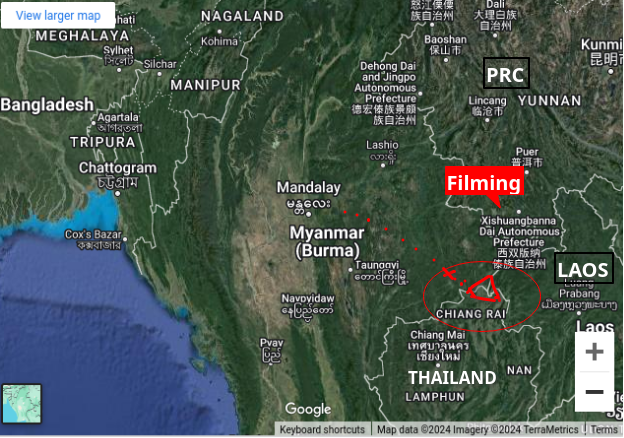
Extreme realism. "It’s not that suspense dramas in the past have never considered making up a realistic background, but the results were often unsatisfactory. Of course, the reasons are various, but they are generally inseparable from several key points such as “too fake” and “no sense of substitution”.
The solution given by "Bianshui Past" is: extreme realism. It does not try to romanticize this sinful place, nor does it intend to create a region with obvious direction and familiarity to the audience. Instead, it uses the concept of extreme realism to let the three-sided slope take root on the screen.
The truth of Sanbianpo lies in language. When the locals on the three sides of the slope meet, they will greet each other with "Wasali" (good luck), in a language created by the series - Bomo language."
...Director Lao Suan told "Film and Television Single Tongue" that Bomo language is not made up from scratch, but a new language system created by specially invited language experts based on the language familiar to Chinese people, including 17 initial consonants and 7 finals.
To a certain extent, it not only further enhances the audio-visual experience of the series, but also has certain academic value.
It is understood that after the language expert participated in the creation, he planned to complete the creation of Bomo language, and also planned to focus his research on the methodology of scientific creation of language in the future." (source) Another realistic note was to show Dan Tuo visiting his old mother and niece, showing that characters are not just made up for the show.
"Once Upon a Time in Bianshui" was launched in Sichuan. And this is where studio work in post production was mostly done. (Source: The "Made in Sichuan" web drama "Bianshui Past", ranked No. 1 on the online drama list, comes to a successful conclusion)
(On February 8, 2023, the drama was announced to be completed)
Distribution license : (Sichuan) Online Drama Review (2023) No. 006 - initially for 16 episodes (the number was hiked up to 21 later)
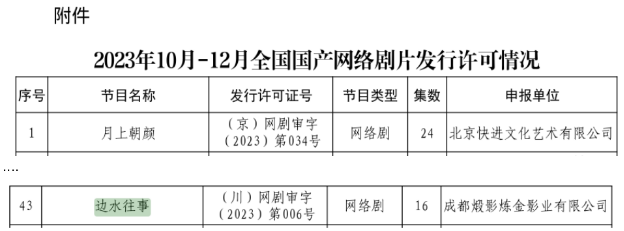 |
21 episodes -
Airing from August 16 to 31, 2024
Each chapter is titled in reference to the events, scams or crimes that are played out :
 Chapter list (with links to YouTube, with English subtitles) Chapter list (with links to YouTube, with English subtitles)
|
WARNING : Youku seems to have discontinued uploading free episodes on Youtube after ep.12, so turn to Kiss or Dramakey (links below synopsis in "Platforms to watch it" subsection, to continue to 14 or 15. Next, you will have to watch in "raw" or to purchase a Youku VIP subscription to watch to end.
(*) Or, if you subscribe as VIP Gold member on the Youku-Get App now channel of Youtube, with recurrent payments (about $3 a month), you can access those episodes with double subtitles Hanzi hardwired + language of your choice in CC.
Synopsis :
The three sides of the slope "San bian po" 三边坡 are located in a tropical country (the "Federal Republic of Bomo") where fish and dragons are mixed, a mottled place where prosperity and decay coexist. Newcomer Shen Xing, a young worker who unexpectedly arrives there to work with his uncle on a hotel construction project in the town of Monang, finds himself faced with a crisis when his uncle disappears. He goes to money lenders to solve the problem temporarily, but gets embroiled in a murder. The victim is an employee of Uncle Cai, unofficial lord of "To-pan", a powerful man with far-reaching connections such as mine owner Wu Haishang, the staunch Buddhist "sheriff"of Mongnawng Aisuo, and the very corrupt president of the Chamber of Commerce Chen Hao. Shen Xing gets sucked deeper in life-threatening adventures, deciding to stay with Mr Cai because of a glimmer of kindness. How will the struggle between staying and escaping play out? (adapted from the synopsis on Maoyan)
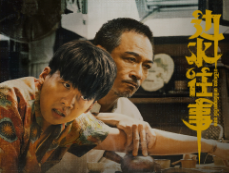
Platforms to watch it (direct links):
Production announced that the drama would be broadcast from August 16, 2024 on Youku Video and Migu Video (which is a Chinese platform for watching series on the phones or tablets). One episode daily (about 60 minutes each).
International platforms with English subtitles : YouTube Other platforms: uploader Kisskh (which has a problem with ep.2 which is repeat ep.1, but it is just a delay mismatch: ep3 is ep2 etc.) ; Dailymotion ; Dramakey ..
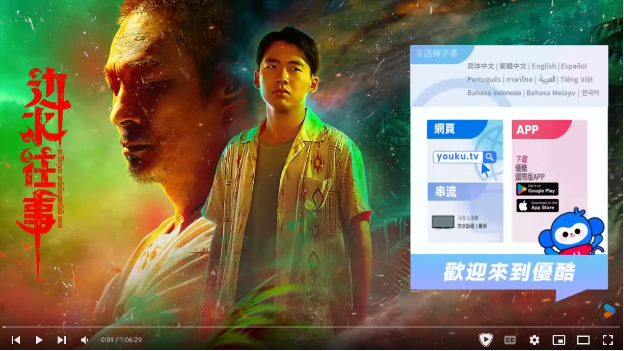 Click on picture above for direct link to YouTube (original without English subtitles) or here with harddwired English + Chinese Hanzi subtitles + language options.
Click on picture above for direct link to YouTube (original without English subtitles) or here with harddwired English + Chinese Hanzi subtitles + language options.
Other language subtitles available in this official playlist for Youku on YouTube.
PROMOTION AND BUZZ :
This drama did not get much promotion before it aired, except for some collectible "animal" posters of some characters played by 28 actors, and some movie style posters :
 |  |
3. Behind the Scenes, Interviews |
The BTS clips on YouTube unfortunately don't come with English or other subtitles but here are a few worth skimming through, showing cast exchanging opinions, and some spectacular explosion scenes... (click on the GIF excerpts from two BTS video, below, to view in full - BTS are 5 to 8 mins long)
 |  |
| The Livestream of August 19, 2024, 1h27min, Chinese only. First part is a kaleidoscope of the action scenes. Director Passsee Mu enters the flight of stairs at time stamp 30:20. |
Interview August 2024
As special poster was made to commemorate the "ordinary road" speech audience of Guo Qilin (the text of which was recorded in Chinese on a series of 18 Weibo posts)
On September 5, a Livestream (no English subtitles) featured a 1h13 group interview of the main actors, with Guo Qilin in remote taking part from 45:37:
4. Music |
The OST has the following songs (source: Baidu drama page) :
| Song Title | Lyrics by | Composed by | Singer |
| "Citizens of the world" taught to kids in tentschool + on SX's ipod end ep.18 | Lǐ dà húzi Syre 李大胡子Syre | Lǐ dà húzi Syre 李大胡子Syre | Lǐ dà húzi Syre (*) 李大胡子Syre |
| 《Yar Myat Tae Myay》 | Min Zaw | Sai Sang Maw | Sai Sang Maw |
| "Wrong Wrong Wrong" 《错错错》 | Zhāng Hǎifēng 张海峰 | Liù zhé /Six Philosophers 六哲 | Liù zhé, Chén Juān er 六哲、陈娟儿 |
| "Dan Tuo said" 《但拓说》 (ep.15-17, 19-20 end song) | Xīnxiān zǐ /Fresh Boy 新鲜仔 | Xīnxiān zǐ /Fresh Boy 新鲜仔 | Xīnxiān zǐ /Fresh Boy (Xià Zhīyǔ ) 新鲜仔 (夏之禹) |
| "Daban" 《达班》 (ep.1-3, 6-12, 21 end song and ep.13 intro. | Xīnxiān zǐ /Fresh Boy 新鲜仔 | Xīnxiān zǐ /Fresh Boy 新鲜仔 | Xīnxiān zǐ /Fresh Boy (Xià Zhīyǔ) 新鲜仔 (夏之禹) |
| "A Dog" 《条狗》 (ep. 4-5,13-14 end song and on radio in ep.16) | Xīnxiān zǐ /Fresh Boy 新鲜仔 | Xīnxiān zǐ /Fresh Boy 新鲜仔 | Xīnxiān zǐ /Fresh Boy (Xià Zhīyǔ) 新鲜仔 (夏之禹) |
The "Dan Tuo said" ( 但拓说 ) song was posted to Youtube on 2024-08-26 ; artist featured is
Xià Zhīyǔ 夏之禹, aka "Fresh Boy" 新鲜仔 - biography further down this post.
 (My GIF above, click on to listen in full, 2.47, Chinese lyrics in Hanzi on screen.)
(My GIF above, click on to listen in full, 2.47, Chinese lyrics in Hanzi on screen.)
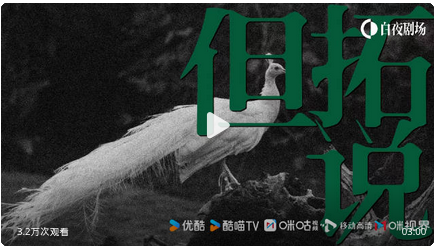 | “山寨电影 山寨说唱 山寨文学” [Shānzhài diànyǐng shānzhài shuōchàng shānzhài wénxué”] = "Copycat movies, copycat rap, copycat literature" - Although this ending song was already posted before the end of the airing, unnoticed by most, Weibo announced that it would "officially be broadcast" from September 5, 2024 noon. |
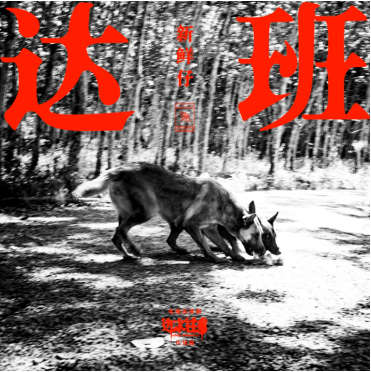 Click on picture above to watch & listen on YouTube Click on picture above to watch & listen on YouTube | "Daban" 达班 (剧集《边水往事》片尾三部曲) ending song of the drama episodes Singer :· 新鲜仔 达班 ℗ Mintone Records Released on: 2024-08-23 arranger: MAJOR YAO Producer: MAJOR YAO Composer: 夏之禹 Composer: 王耀 Lyricist: 夏之禹 Provided to YouTube by Mintone Records - 3mins. |
 Click on MV part (ending of episode 6) above of my GIF to listen in full to the Daban (To-Pan) song, starting from timestamp 46:20 :
Click on MV part (ending of episode 6) above of my GIF to listen in full to the Daban (To-Pan) song, starting from timestamp 46:20 :
- "走山 接水 讨生活
- Zǒu shān jiē shuǐ tǎo shēnghuó (I walk mountains and fetch water to make a living. )
- 哥啊 妹啊 别想太多
- Gē a mèi a bié xiǎng tài duō (Brothers and sisters don't think too much ! )
- Get some money make some money
Scared money don't make no money - ...(music)... Welcome to To-Pan...."
- ... (Bokang, Mokang, Trilateral Slopes, A golden land that is afar..."
Complete lyrics on this page.
"The real street artist Message dog" #比水 Past Story# The ending song "A Dog" will be released soon! 2024.08.28 Wednesday 12 o’clock. (Drama Weibo Page)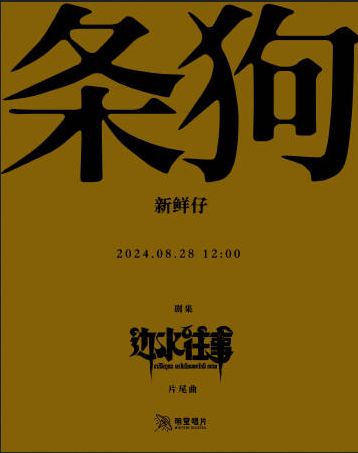 | "A DOG" MV : |
About the artist, adapted from a 2021 illustrated feature online, with links to music added:
| Hip hop rapper artist Xià Zhīyǔ (夏之禹) was born in Baolun Town, Guangyuan City, Sichuan in a local factory worker family, growing up watching HongKong and Taiwan movies. His witnessing the transformation of the industrial city, conflicts between state-owned enterprises and local governments, and the wave of layoffs, was the background for his song "Hometown". He explained how his worldview changed through listening to Eminem and 50 Cent's "Holocaust" and looking up the rough lyrics online. But the powerful rhythm appealed to him, while he realized that heroes don't need to be perfect, can be full of flaws and have a rough background. While at college, Xià Zhīyǔ began to hang out on major Hip-Hop forums. |  |
| On Yhood, he used "Yung Shar"as an alias to form, with two friends: APlus, an early rap group in Chengdu. Their song 《带着梦想飞》("Flying with Dreams") got widely circulated and included in 《HIP HOP》(a long medley compilation dating back to 2012 or so). But after graduation, each went their separate ways, while Xià Zhīyǔ had to work as migrant worker. He still kept in touch with Li Tiangao, the boss of Mingtang Records who invited him to work as a rapper for the label. Xia Zhiyu's sweet and romantic style led fans to call him "Hip Hop King Cindy" (嘻哈界王心凌). In 2017《California Dream》, he imagined a Chinese gangster living a romantic story in Los Angeles, somewhat like in the movie "A Better Tomorrow" but on the streets of the West Coast. His first brush with survival show "China's new rap" in 2018 was a letdown for him and it took work for the director of "The New Generation of Rap" to persuade him to join in 2020 together with others like Ma Siwei (马思唯). The conditions initially caused him to back out in first episode, but as changes were made, he became less negative for second season, where he admired the less emotion-filled description of the details of life and the unique language style of Guo Dan (国蛋).  Xià Zhīyǔ does not feel that rap should express a sense of mission, and feels dispassionate. He released a song with the 汽油队兄弟 group called 《Cypher》, and an album called 《Young Fresh Chin》followed in 2023 by 《Young Fresh Chin II》. Xià Zhīyǔ does not feel that rap should express a sense of mission, and feels dispassionate. He released a song with the 汽油队兄弟 group called 《Cypher》, and an album called 《Young Fresh Chin》followed in 2023 by 《Young Fresh Chin II》. |
(*) 李大胡子Syre (Li Dahuzi /Sure) has several songs of his own on this channel, and a number of Bob Dylan covers, but the "Citizens of the world" song is not among them. The singer posted a message on Bilibili on August 16 announcing : "My song is going to be on TV!
After the online drama "Bedlam", my friend Lao Suan has launched his latest masterpiece "Once Upon a Time in Bianshui". I watched the trailer! This word is awesome, I hope everyone will pay attention to it. In addition, there is an original song of mine in it. Let’s see if you can find it. Thank you for your support."
--> go to end of ep.18 when Shen Xing listens to it on his ipod.
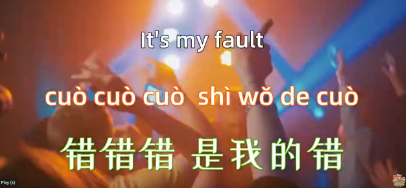 Wrong 错错错 - Six philosophers & Chen juan'er 六哲&陈娟儿 Chinese songs lyrics with Pinyin. + the original MV of same song (4 mins44) on YouTube.
Wrong 错错错 - Six philosophers & Chen juan'er 六哲&陈娟儿 Chinese songs lyrics with Pinyin. + the original MV of same song (4 mins44) on YouTube.
I am stumped for the Burmese song "Yar Myat Tae Myay"... If anyone knows it and has a link, feel free to add it in comments ! Same, if another song rang a bell during the drama (there are a few in the KTV scenes that I can't quite remember...)
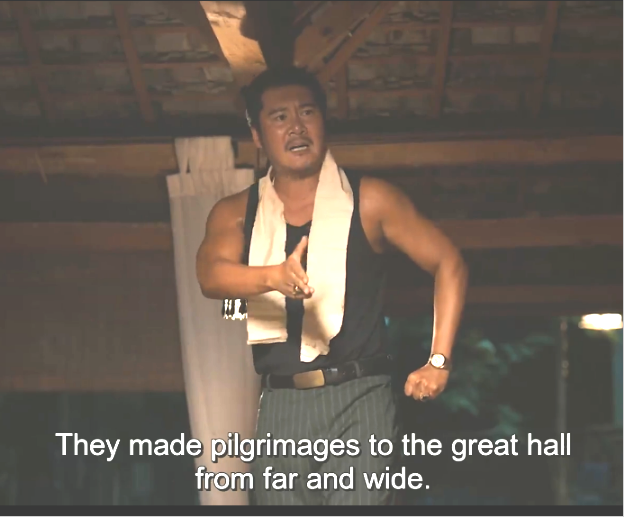 |  My GIF above: Beijing Drum Songs excerpt, feat. singer Chen Xiumin with flatdrum and bamboo clapper, and sanxian player Bai Huiqian (YouTube short video) My GIF above: Beijing Drum Songs excerpt, feat. singer Chen Xiumin with flatdrum and bamboo clapper, and sanxian player Bai Huiqian (YouTube short video) |
Ep.13, "Xia Wenjing" sings an epic song in imitation a capella Jingyun dagu style about Shili Village's Luan Basong (a story evoking a kingpin of Trilateral Slopes!).
Jīngyùn dàgǔ 京韵大鼓
is a storytelling art that involves talking and singing to a musical accompaniment. The singer narrates the story while providing the rhythm with a stick beating on a flat drum and a bamboo clapper in the other hand. He/she is usually accompanied by three musicians playing traditional instruments : sanxian (three-string snake-skin lute), sihu (four stringed fiddle), and pipa. Jingyun dagu has its origins in the north of China, in farmers style using only a plank to beat the rhythm. It became particularly popular in Beijing and Tianjin with instruments. In 2008, jingyun dagu was listed as part of the nation’s intangible cultural heritage. -- A traditional genre of Chinese narrative singing, one that flourished in Beijing at the turn of the 19th and 20th centuries, for example, “Beijing Drum Songs” musically tells many stories from the Sanguo Yanyi (Romance of the Three Kingdoms) and the Shuihuzhuan (All Men Are Brothers), portraying martial heroes, treacherous villains, and charming ladies. One famous female singer of Jinyun dagu is Feng Xingrui (rec.2012). A CGTN report (Youtube, 29 mins35) shows the art, nowadays, and a singer using the instruments with her song in 2022.
5. The Golden Triangle |
 Screenshots from Escape From The Triangular Slopes : Shen Xing and Dan Tuo overlooking the "Kingdom of Laza"
Screenshots from Escape From The Triangular Slopes : Shen Xing and Dan Tuo overlooking the "Kingdom of Laza"
 Aerial view from a drone on the Mekong river at tripoint, 28 September 2021
Aerial view from a drone on the Mekong river at tripoint, 28 September 2021
A lot has been written about this region that straddles the borders of three countries : Thailand, Myanmar, and Laos. Time and again, news are recycled about the dangerous crime-beds that are firmly rooted in the region. It used to be the growing ground of poppy fields, transformed into opium, and other drugs such as heroin. The mountainous terrain and the civil wars going on both prevented crackdowns and encouraged the illegal trade which brought revenue to the local gang lords.
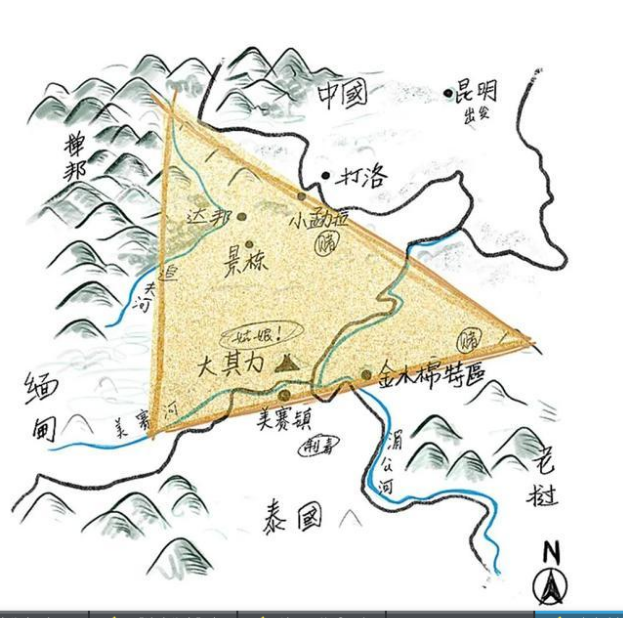 |
Geographically, the hilly territory at the confluence of Mekong and Ruak rivers at the borders of Laos, Thailand and Myanmar constitute the Triangle. It has been the source of much political conflict and instability for decades after the Second World War. The region is also known for its natural resources, including copper, gold, opium, and natural gas.
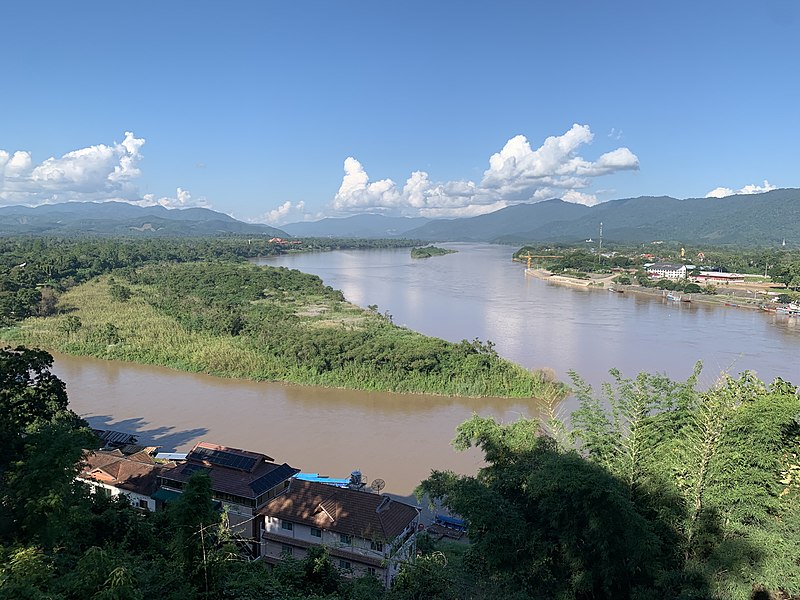 View of the Golden Triangle at Wat Phra That Doi Pu Khao on 26 October 2021 (photo by on Chainwit on Wikipedia) View of the Golden Triangle at Wat Phra That Doi Pu Khao on 26 October 2021 (photo by on Chainwit on Wikipedia) |
Chiang Rai is the commercial center of the Golden Triangle border region of Thailand, Myanmar, and Laos. It is an excellent base for exploring the region. Chiang Rai is essentially a service city for the surrounding province. The greater area has a relatively small population of 200,000 people, but also has a respected university and other civic facilities.
The character is distinctly Northern and is distinct from Chiang Mai to the south in various ways. The food is spicier and the ethnic composition includes a good percentage of hill tribes and Burmese exiles. (links to Wikivoyage details)
 | 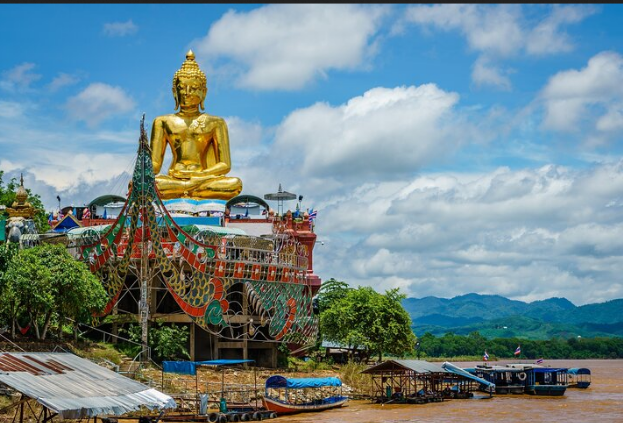 |
In recent years, the Thai part of the Golden Triangle has been somewhat pacified, Thailand has even opened a tourist zone (The Golden Triangle Park) and a museum of the Opium trades of the past (poppy fields have been eliminated since 1965 in Thailand) ! A magnificent bronze Buddha image sits on a boat (Phra Chiang Saen Si Phaendin or Phra Buddha Nawa Lan Tue, on a large boat called Rua Kaew Kusoltham). Although the region and the park may be visited with groups adnd guides, it still is not 100% safe to go on tour there !
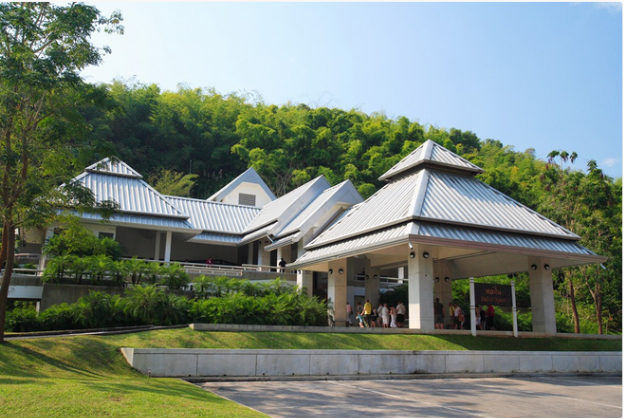 Hall of Opium museum in Chiang Rai: it sits in a green valley Hall of Opium museum in Chiang Rai: it sits in a green valley | 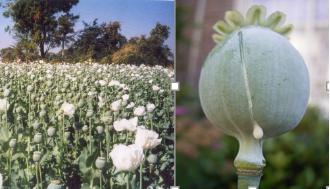 Papaver somniferum (opium poppy field and seed pod exuding latex from a cut, Wikipedia) Papaver somniferum (opium poppy field and seed pod exuding latex from a cut, Wikipedia) |
"The Hall of Opium Museum is a combination of multimedia and exhibition to make learning more fun. Aiming to educate people about opium, this exhibition portrays every angle of the story, starting from the history of the Golden Triangle, the origin of opium, the opium war, opium warlords, drug smugglers, opium effects, the battle against opium and poppy growing, to rehabilitation of living conditions of the people who live in the central of the Golden Triangle, the former worldwide infamous drug trading zone. The exhibition features the following zones: Entrance Zone: A 137-meter-long dark tunnel towards an artificial poppy field in the Hall Zone. Hall Zone: An artificial poppy field, where you can learn about various species of poppy flowers. Opium in Siam Zone: A mock-up of a Chinese tea house in Yaowarat where people came to smoke opium and the story about the origin of opium in Siam. Magic Medicine Zone: This zone shows science behinds the development of morphine and heroin. Opium Effects Zone: This zone shows the adverse impact of drugs and drug addictions on individuals and the society. " (Golden Triangle Park, Thailand Tourism information)
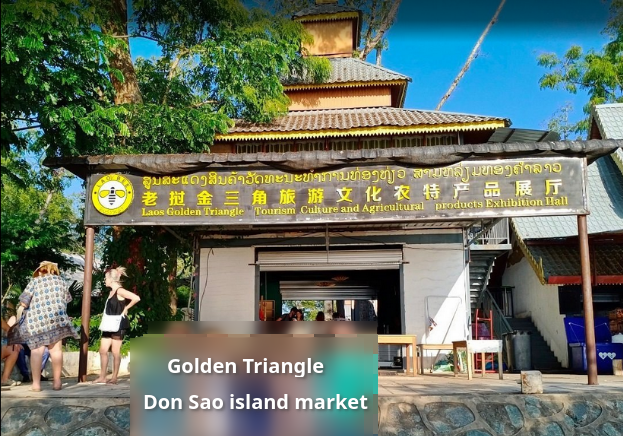 | 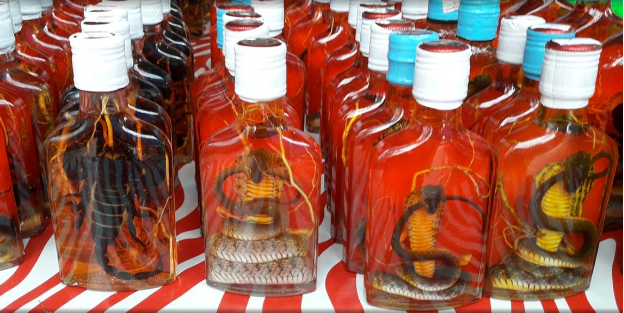 |
In Laos, the only visitable part of the Golden Triangle is Don Sao island, a "tourist trap" reputed for fake leather bags and whisky laced with snakes that are supposedly medicinal! a high-speed rail link has been constructed, linking Bangkok in Thailand to Vientiane, the Laotian capital ; it passes on impressive rail bridges over rice paddies, lakes, and rivers, and links now all the way to the Chinese border, with a link further to Kunming, the Yunnan provincial capital.
THE HUB OF ILLICIT AND DRUGS TRADES
 "How One Man Rules in Asia’s Golden Triangle"(Bloomberg, August 20, 2024 repost to YouTube, 15 minutes) "How One Man Rules in Asia’s Golden Triangle"(Bloomberg, August 20, 2024 repost to YouTube, 15 minutes) |
As the drugs trade keeps flourishing in the world, reporters point to the persistence of gangs in the "Golden Triangle". Most recent was this Bloomberg feature of August 2024, that brought up, again, the role of famous "kingpin" Zhao Wei. To blame China behind for being complacent or perhaps benefiting from the illegal trades! But, as PeachBlossomGoddess justly remarked in comments :
"The Golden Triangle is a very complicated area and a known hotbed for drug trafficking and all kinds of illegal activity. But the scamming syndicates are everywhere, not just in the Golden Triangle - its in the Philippines, Indonesia, Malaysia, Laos, Thailand etc. The reporter is exaggerating the Golden Triangle's issues and Zhao Wei by making that the epicenter of everything bad. Its also the typical ignorant Western press reporting. China unlike America does not interfere with domestic affairs of sovereign nations. They are not going to storm across the Thai/Laos/Myanmar border to play superhero superpower and take down Zhao Wei. That is how wars get started !!! And you can bet your bottom dollar if they did it, the US would seize it as an excuse to sanction or even start a war with China for invading Thailand/Laos or Myanmar. Its just ridiculous. --- The real issue, which I hope the drama explores is that all three countries are basically run by the military. And the military are partners in the whole drug trafficking effort. They need it to fund their existence. They can shut it all down if they wish but they don't. They just cry about how they have no control over the situation bc its not a legitimate economic activity for a legitimate government to be engaged in. It is a business worth billions of dollars and very meaningful to these otherwise nothing economies."
Quite true, these trades are an ever regenerating cancer that has affected the world for centuries : the Italian Mafias are still not extinct, neither are the Mexican and South American "cartels", and gangs in America have been portrayed time and again in movies and literature : they are far from vanished. The slave trade of past centuries may have ended officially for the "righteous countries" (some of which partook shamelessly in the opium trade and wars, between 1839 and its peak from 1889 to 1892 spreading the drug from India to China and to the rest of Asia), but several countries still resort to unofficial or not slave trade, rebranded as "human trafficking"...
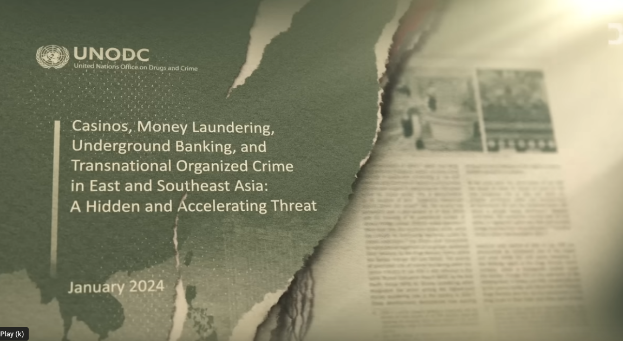 The catalogue of crimes includes money laundering, often through casinos, and rare wood or endangered species trafficking, and today, online scams that can siphon away the savings of gullible Netizens, particularly elderly people.
The catalogue of crimes includes money laundering, often through casinos, and rare wood or endangered species trafficking, and today, online scams that can siphon away the savings of gullible Netizens, particularly elderly people.
According to a Quora comment, the largest gang in the Golden Triangle is the Shan army :
"Created by defeated soldiers of the Republic of China (Taiwan) following the loss of mainland China in 1949, the Shan Army has used its massive drug cultivation and processing for 7 decades to fight wars against China and the Republic of Myanmar.
Holding large swathes of Shan State in Myanmar, with Shan State comprising almost a third of Myanmar, the Shan Army wages a constant battle against federal forces in Napiydaw for independence — and in effect create a buffer border state between China and Myanmar.
The US turns a blind eye to this activity and in fact sanctions Myanmar itself to weaken its ability to deal with the Shan State rebels, despite the heavy flow of drugs from the Golden Triangle that ultimately reach America, particularly opium and opioids. It does so to foster chaos in the region, and destabilize China and Myanmar. CIA agents operate from a massive base in Thailand in support of Shan State activities, a similar playbook from US activities in South America."
 | But the Shan State itself has roots that go much further up in time, as witness the well-known story of warlord and drug kingpin Khun Sa (1934-2007) . The Chinese side of his family had been living in Shan State since the 18th century. Trained by the Kuomintang, he established his independence by the 1960s and, like many government-supported warlords, used profits from the opium trade to buy large supplies of military equipment from the black markets in Laos and Thailand ; these warlords were soon better equipped than the Burmese army. |
Although Khun Sa had been captured in 1969, he was released in 1974, in a release rumored secretly brokered by Thai General Kriangsak Chomanan, whom Khun Sa secretly contributed $50,000 US to support in a 1981 Thai election campaign. From 1974 to 1994, Khun Sa became the dominant opium warlord in the Golden Triangle. As drug trafficking routes opened up to India, Laos, and Cambodia, which Khun Sa did not control, his power waned. Challenged militarily by another nominally independent ethnic rebel organization in northern Myanmar, the United Wa State Army (which became the largest opium supplier in the region), Khun Sa finally surrendered to the Burmese government on January 5, 1996, gave up control of his army, and moved to Yangon (formerly known as Rangoon) with a large fortune. During his retirement he became a prominent local businessman, with investments in Yangon, Mandalay and Taunggyi. After his retirement he described himself as "a commercial real estate agent with a foot in the construction industry". He ran a large ruby mine, and invested in a new highway running from Yangon to Mandalay. (adapted from the Wikipedia biography)
"Following an eradication campaign in the Golden Triangle, poppy cultivation decreased more than 80 percent from 1998 to 2006 but grew back again, before decreasing since 2014, as synthetic drug production expanded. The Golden Triangle is now one of the world's leading areas for the production of synthetic drugs and particularly methamphetamine as production has scaled up of Yaba tablets and crystalline methamphetamine, including for export to Australia, New Zealand, and across East and Southeast Asia. In 2023, Myanmar overtook Afghanistan as the world’s biggest producer of opium, after a ban on poppy cultivation by the Taliban reduced opium production by approximately 95%." (Opium is also used in medicine, so it is difficult to eradicate poppies entirely: "the use of morphine and other derivatives (codein, laudanum...) isolated from opium in the treatment of chronic pain has been reestablished.").
"With respect to the accelerating synthetic drug production in the region, and specifically in Shan State, Myanmar, Sam Gor, also known as "The Company", is understood to be one of the main international crime syndicates responsible for this shift. Sam Gor is alleged to control 40% of the Asia-Pacific methamphetamine market, while also trafficking heroin and ketamine.
----
TOURISM IN THE GOLDEN TRIANGLE
 My GIF excerpt from "Complete Guide to the Golden Triangle" (click on to view in full, 6'40) My GIF excerpt from "Complete Guide to the Golden Triangle" (click on to view in full, 6'40)Wikipedia, Trip.Advisor and other sites have spectacular pictures of the Golden Triangle, although that region still remains an adventurous proposition to visit. |
 Thailand Laos Burma Border (GoldenTriangle) viewpoint at Wat Phra That Pha Ngao in October 2022, by Chainwit on Wikipedia Thailand Laos Burma Border (GoldenTriangle) viewpoint at Wat Phra That Pha Ngao in October 2022, by Chainwit on WikipediaAt Sop Ruak, a village at the confluence of the rivers) nicknamed "center of the Golden Triangle" : the gate to the Golden Triangle features elements of various creeds : an Indian Ganesh statue, a Chinese dragon, an elephant, a fish tailed goddess --> The Golden Buddha or Phra Chiang Saen Si Phaendin sits just across from the GTSEZ where the conspicuous golden dome can be seen on the other side of the Mekong river. ---> | 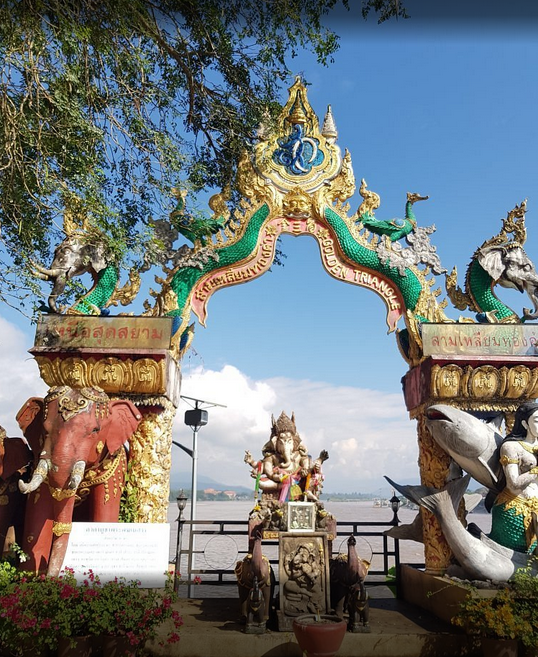 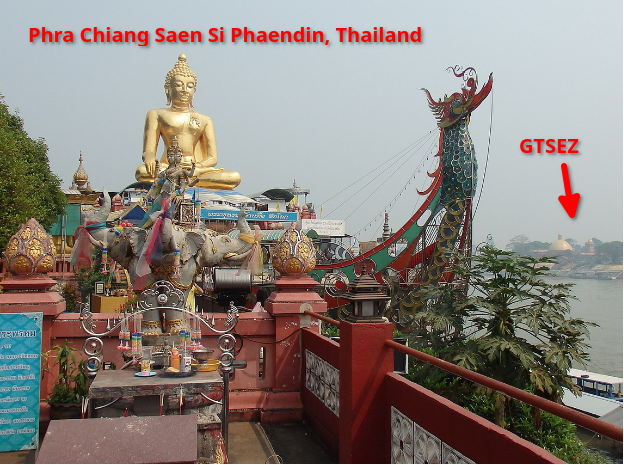 |
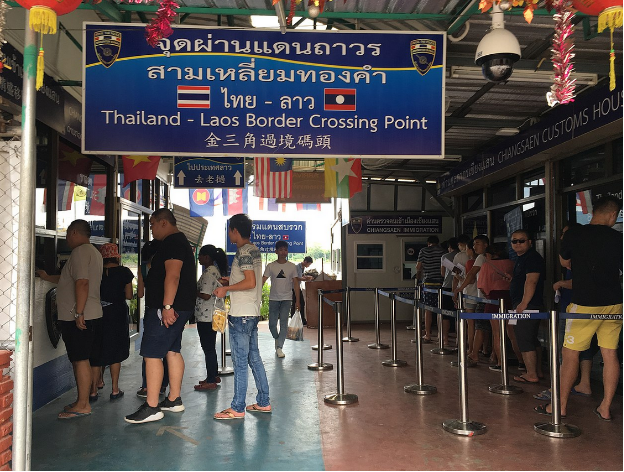 Border crossing checkpoints: Thailand- Laos Border crossing checkpoints: Thailand- Laos | 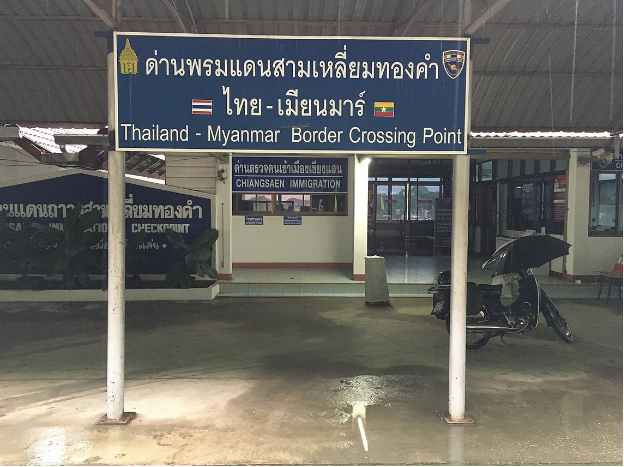 Thailand - Myanmar (not many there !) Thailand - Myanmar (not many there !) |
What is the best time to visit Golden Triangle? The best time to visit The Golden Triangle in Thailand is from November to February which are the winter months. The weather is pleasant, dry and the water level of the rivers Mekong and Ruak is safe for boat rides. The mercury level remains between 14ᵒC and 31ᵒC. | 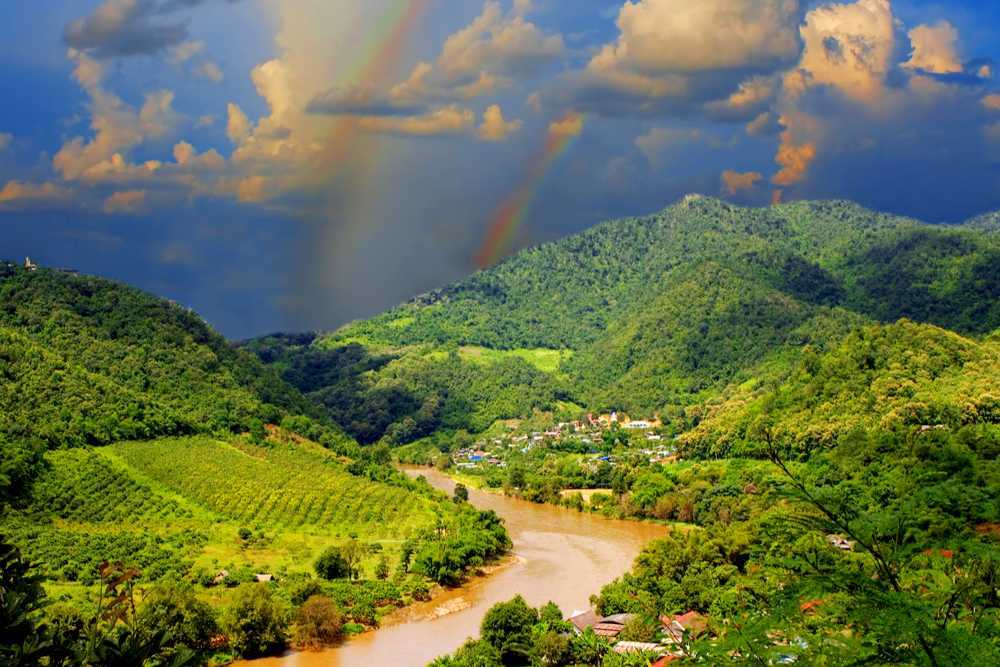 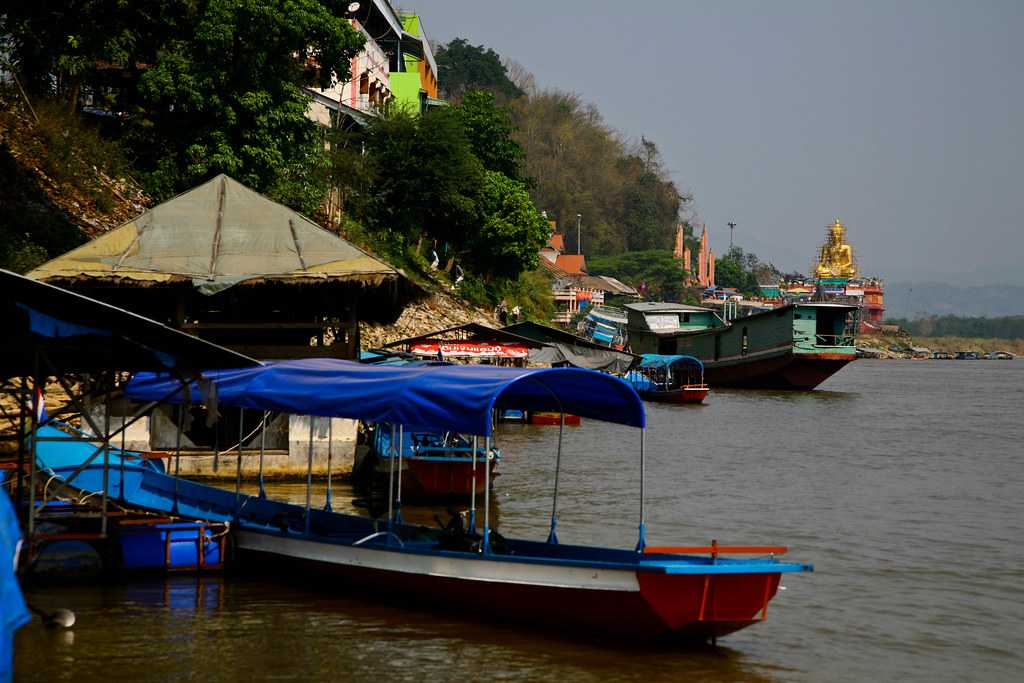 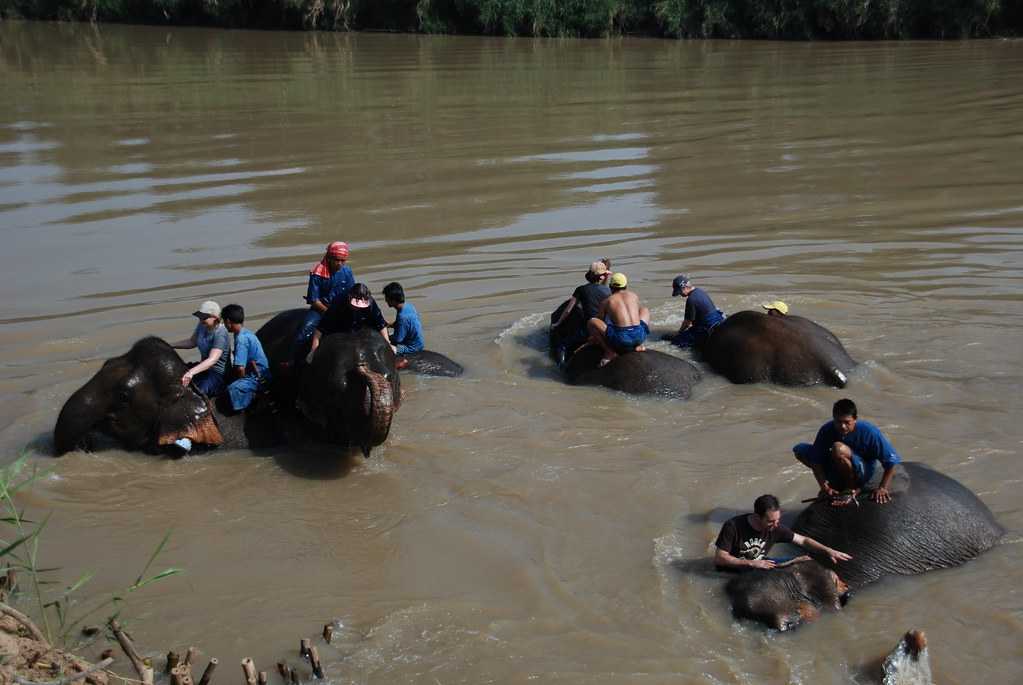 |
 |
6. The White Night Theatre of Youku |
The following is a copy of an interesting feature from the Blogspot page of Just Me, dated April 24, 2024. It details how Youku took up the challenge to compete with the similar iQiyi Light On "suspense collection" that according to some commenters had become "formulaic" ; the new collection from Youku got favorable reviews with its first shows in 2024.
"On April 22nd, Youku announced a significant change: the company has “upgraded” its Suspense Theatre (悬疑剧场) to the White Night Theatre (白夜剧场), set to officially launch on April 24th. Alongside this announcement, they revealed that Gone with the Wind (微暗之火) [1] has been chosen as the inaugural drama for this newly rebranded anthology series, with the premiere scheduled for three days later, on April 27th.
This move represents a rebranding and a fresh start for the content previously offered under the Suspense Theater banner. By transitioning to the White Night Theater, Youku signals its intention to take a new direction, adopt a different tone, and potentially elevate the quality of suspense drama series released on their platform.
Youku shared this rebranding news via their Weibo channel, accompanied by a video featuring the new ident and the following text: 黎明前的黑夜终将走向光明,在抽丝剥茧的悬疑之旅中,总有人不忘对真相与正义的追求与探索。悬念迭起,终见光明;长夜必尽,真相大白!4月24日 "The darkness before dawn will eventually turn to light. Amidst the suspenseful journey of unraveling mysteries, there are always those who persistently seek truth and justice. As suspense builds, the light becomes visible; the long night will end, and the truth will be revealed! On April 24th." It appears that more details about this rebranding will emerge from Youku tomorrow (24th April). Fans of Chinese suspense series should keep an eye on Youku’s Weibo account to stay informed about any further developments. Additionally, Youku likely issued a press release to various media outlets, as several of them have carried similar information. The essence of this announcement is that the White Night Theater aims to delve into deeper social issues, portray profound human emotions, create an immersive viewing experience, and evoke resonance and empathy among viewers. In doing so, it hopes to carve out a new path and establish a fresh space for high-quality Chinese dramas. Youku’s commitment to differentiated content suggests a departure from the norm, promising something novel and refreshing for their audience. Perhaps we can anticipate unconventional narratives, complex characters, and unique themes. Earlier, Youku had already announced its intention to produce high-quality short dramas directed by renowned filmmakers. Three such dramas have been revealed:《雪迷宫》The First Shot,produced by Zhang Yimou and directed by Lü Xing;《边水往事》produced by Cao Baoping and directed by Suàn; and《新生》, directed by Shen Aozhi. While not explicitly stated, industry expectations are that these three series will also fall under the White Night Theater banner. This is exciting news for Chinese suspense fans, offering a fresh direction and new possibilities for the genre. |
[1] Shortly after, on April 26, an Instagram post warned that "Gone with the Wind (Tong Yao, Zhang Xincheng) had been renamed to 'Tender Light' "
Two posters accompanied the feature, related to the first two shows in the new White Night Theater - Tender Light (26 episodes, April 27 to May 10) and Regeneration (10 episodes, May 6 to May 15). Insect Detective 2 followed (26 episodes from May 21 to June 1 : a thrilling, mysterious, and intense Sino-Thai insect crime drama) before present Escape from The Triangular Slopes.
 |  |
To be noted, "Just Me" did an awesome in-depth study of "Tender Night" after a shorter presentation of that drama (can be read by clicking on links)
Next White Nights Theater new drama : The First Shot (mentioned above) has announced, on August 23, that it passed 3 million reservations! It airs from September 3, 2024 on Youku. A 32 episode drama set in 1997 before the establishment of the Narcotics Control Bureau. It features Johnny Huang and Wang Ziqi, with Liu Runnan, Zhao Yutong, and Chloe Xie ; and is "executive produced by Zhang Yimou". It passed review in late May 2024, and has now released some character posters and a 2 mins trailer. Upcoming on dramas to watch list ! (My GIF excerpt from the trailer, click above to view in full)
To view first episode with subtitles on Youtube (53'29) : it was posted on Youku English Channel on September 3, 2024.
白夜剧场 (White Nights Theater) drama list
From the Chinese Wkipedia page, here is the list of dramas that were included in the previous division of Youku suspense and thriller dramas, including those renamed as 白夜剧场 (White Nights Theater) :
"Youku launched Suspense Theater in 2020, focusing on various types of suspense dramas to compete with iQiyi's Mist Theater. In 2021, Youku cooperated with writer Zijin Chen to further create a suspense theater. Representative plays as of 2022 include "Outside the Court", "Coward", etc. Starting from April 2024, Youku announced that the suspense theater was renamed White Night Theater. The promotional slogan is "The long night must end, and the truth will be revealed." "Dark Fire" became the first series launched by White Night Theater."
《失踪人口》Missing Persons (12 eps) 《白色月光》Goodbye, My Love (12 eps) 《我在香港遇见他》The Journey Across the Night (26 eps) 《平行迷途》Parallel Lost (18 eps) 《破茧》Insect Detective (24 eps) 《预支未来》Futmalls.com (8 eps) 《最初的相遇,最后的别离》To Love (40 eps) 《黑白禁区》The Penalty Zone (44 eps) 《迷雾追踪》The Burning River (24 eps) |
《玫瑰行者》Stealth Walker (24 eps) 《真相》Truth (32 eps)
《冰雨火》Being a Hero (32 eps) 《庭外》Out of Court (20 esps) 《胆小鬼》Nobody Knows (16 eps) 《回廊亭》The Murder in Kairoutei (12 eps) 《法医秦明之读心者》 Medical Examiner Dr. Qin: The Mind Reader (28 eps) 《执念如影》Obsession (24 eps)
《立功·东北旧事》Good Guy Good Luck (12 eps) 《他是谁》Who Is He (24 eps) |
《微暗之火》Tender Light (28 eps) 《新生》Regeneration (10 eps) 《破茧2》Insect Detective Season 2 (26 eps) 《边水往事》Escape from the Trilateral Slopes (21 eps) 《雪迷宫》The First Shot (32 eps) 《黑白诀》Duel of Shadows (24 eps)
《沙尘暴》Sandstorm (12 eps) 《旷野之境》Brave New World 《白夜破晓》Day and Night Season 2 (30 eps) 《无声的回响》Silent Echoes |
7. Tapirs |
In episode 6, Mr Cai gave a pair of gold tapirs to Ai Suo who was celebrating his wedding: |
What is a Tapir?
(Copy from the page on the site of the Tapir Specialist Group, with some adaptation and additions)
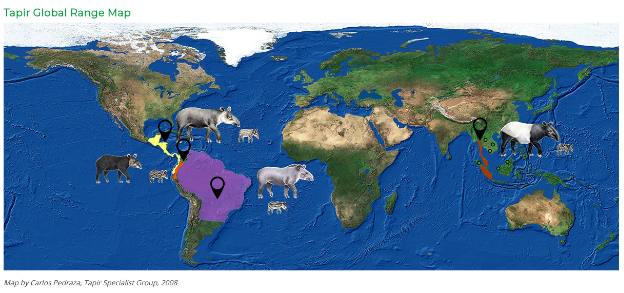 These rare mammals are often confused with hippos, pigs or anteaters, but their closest living relatives are actually rhinos and horses. Tapirs are a living fossil; they have been around since the Eocene, having survived waves of extinction of other animals. They are South America’s largest native land mammal, with adults ranging in size from 300-700 pounds.
These rare mammals are often confused with hippos, pigs or anteaters, but their closest living relatives are actually rhinos and horses. Tapirs are a living fossil; they have been around since the Eocene, having survived waves of extinction of other animals. They are South America’s largest native land mammal, with adults ranging in size from 300-700 pounds.A tapir’s most notable feature is its unique prehensile nose. Not only can they wiggle their nose, but they can use it to grab leaves when foraging. When swimming, they can use it as a snorkle! They are fast and agile swimmers. Tapir hides are very tough, and their bodies are streamlined for easy maneuvering in the forest. They have four toes on their front feet and three toes on their hind feet, with which they can run very fast for short bursts of speed through the forest.
Tapirs don’t reproduce rapidly like some mammals; their pregnancies are very long – 13 to 14 months! And they only have one baby per pregnancy. Tapir babies stay with their mothers for twelve to 18 months. Though they are tough, resilient animals who have survived for many millennia, as their populations continue to decline, it is increasingly difficult for them to recover.
There are four living species of tapir, each with a distinct appearance and habitat range. Tapirs are found in the forests of Central and South America as well as Southeast Asia. They are becoming rare in their habitats, mostly due to habitat destruction and poaching, and they are designated as either Vulnerable or Endangered as a result.
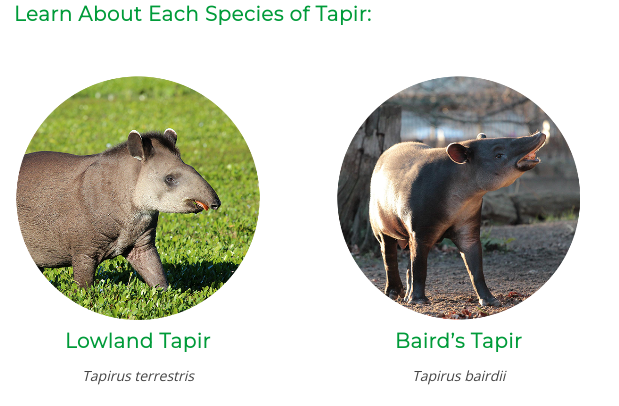
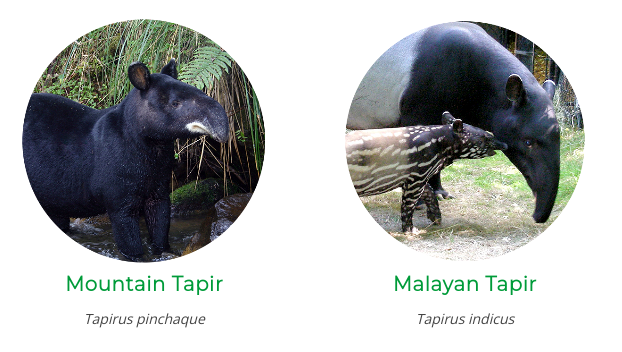
Threats to Their Survival
Three major threats to the tapir include:
- Being hunted for their meat
- Habitats becoming fragmented due to roads and farming
- Encroachment into protected park areas by subsistence farmers and illegal logging
Tapirs do well where there are few threats impeding their normal needs to thrive in large undisturbed tracts of habitat. Certain areas of the Brazilian Amazon, Brazilian Pantanal, Peruvian Amazon, Honduran Mosquitia and Panamanian Darien forests have healthy tapir populations.
Tapirs in the wild do have predators, typically large cats, though this effect on their population is tiny compared to that of human predation and habitat consumption. Tapir young are born with a beautiful “watermelon” striped pattern on their hide, camouflaging them effectively from predators. Adults are skilled at running through thickets of forest and diving into rivers or deep pools of water to escape predators. Like all herbivores, they serve a role in the ecosystem by being a food source for predators.
Tapirs Play a Critical Role in Their Ecosystems
Tapirs shape and maintain the biodiversity of tropical ecosystems; without them, there would not be the same rich variety of animals and plants there. They are known as an “umbrella species” because they have a wide-ranging habitat that also includes wild cats, monkeys, deer, and many varieties of birds and reptiles. If we protect their habitat, the habitat of many other animals is also protected.
Tapirs are helpful to their native landscape in many ways; one role is that of seed dispersers. Tapirs eat a variety of seasonal fruits; when mango or fig trees come into season, tapirs can often be found underneath these trees, eating the fruits that fall from them, or are dropped by monkeys munching on fruit from above. The seeds of the fruits they eat are dispersed when they wander to a new location to deposit scat, and those seeds later sprout and grow new trees, helping the forest to regenerate. Because of the tapir’s enormous appetite for fruit, they have earned the title “gardeners of the forest.” Forest structure and diversity would be very different without the tapir in the landscape.
Because of their enormous size and large range, the tapir is one of the first species in its habitat to be adversely affected by human disturbance. Local extinction or population decrease may trigger adverse effects in the forest, causing disruptions of some key ecological processes (e.g. seed predation and dispersal, nutrient recycling), and eventually compromising the long-term integrity and biodiversity of the ecosystem. These factors, added to the destruction of tapir habitat in recent years, justify the urgency for investigation of the status of the populations, and development and implementation of conservation and management plans.
Tapir Specialist Group advocates on behalf of tapirs and works to conserve their habitat and genetic diversity through research projects on tapirs, high standards of zoo husbandry, and networking with government bodies, conservation organizations, universities and zoos to create greater tapir awareness and conservation planning.
Learn More
The International Union for Conservation of Nature (IUCN) maintains the Red List, widely recognized as the most comprehensive and objective global database of the conservation status of plant and animal species.
- IUCN Red List – Lowland Tapir (South America) ;
- IUCN Red List – Baird’s Tapir (Central America)
- IUCN Red List – Mountain Tapir (Peru, Ecuador, Colombia ; it is extinct in Venezuela and Bolivia)
- +
IUCN Red List – Malayan Tapir : The Malayan tapir (Tapirus indicus), also called the Asian tapir, is the largest of the five species of tapir and the only one native to Asia. The scientific name refers to the East Indies, the species' natural habitat. In the Malay language, the tapir is commonly referred to as cipan, tenuk or badak tampung. |
| Anecdote : Tapirs are herbivorous, nocturnal, with poor eyesight but sharp hearing and sense of smell. They usually feed at dusk, eating tender shoots and leaves of more than 115 species of plants, of which around 30 are particularly preferred. This one had been found as a very young orphan but quickly grew to be a concern and was given to National Park staff in Malaysia. Every night, it entered a restaurant to get watermelon ! Here, it was observed in Jerantut, Malaysia, in January | 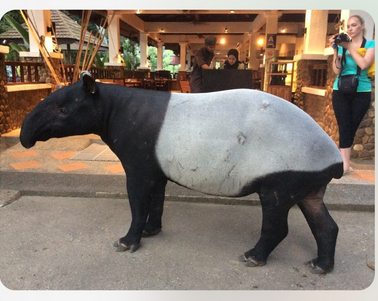 |
It has been listed as Endangered on the IUCN Red List since 2008, as the population is estimated to comprise fewer than 2,500 mature individuals. Since 2014 (last count), it stays on the "endangered' red list; their population is decreasing.
"The Malay Tapir occurs in three relatively distinct and, in a few cases, isolated populations - two occurring on mainland Southeast Asia (Thailand/Myanmar), Southern Thailand/Malaysia and the other the island of Sumatra, Indonesia. The population on Sumatra continues to decline due to extensive loss of habitat, accidental and deliberate trapping for meat and removal of animals for zoos in Indonesia. To date, there are no reliable population estimates for Sumatra. It is now considered extinct in Sabah on Borneo.
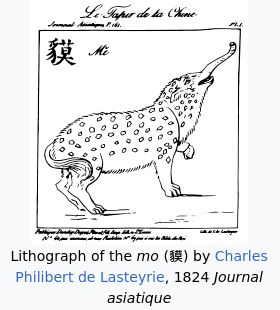 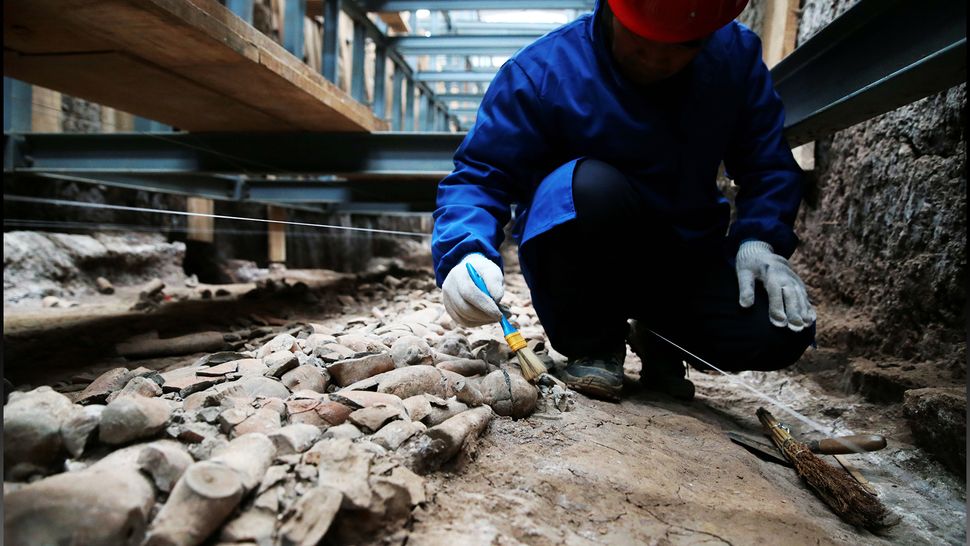 | Anecdote : The mythical 貘 (mò)There is proof that tapirs were once found as far north as China. But there, it as confused with the giant panda, with the name mò being applied to both species. (In Japan, tales of the tapir are believed to have given rise to the legendary baku.)Chinese woodblocks depict the mo (貘) as having an elephant trunk, rhinoceros eyes, cow tail and tiger paws, following the description of 9th-century Tang poet Bai/Bo Juyi. Between August 2021 and August 2022, archaeologists excavated 23 pits containing ancient animal sacrifices near the tomb of Emperor Wen (reign circa 180 B.C. to 157 B.C.). In addition to the skeletons of the giant panda (Ailuropoda melanoleuca) they found remains of a tapir, gaurs (a species of bison), tigers, green peafowl (also called green peacocks), yaks, golden snub-nosed monkeys and takins (goat-like creature). |
"The Malayan tapir is the largest of the four extant tapir species and grows to between 1.8 and 2.5 m (5 ft 11 in and 8 ft 2 in) in length, not counting a stubby tail of only 5 to 10 cm (2.0 to 3.9 in) in length, and stands 90 to 110 cm (2 ft 11 in to 3 ft 7 in) tall. It typically weighs between 250 and 320 kg (550 and 710 lb), although some adults can weigh up to 540 kg (1,190 lb). The females are usually larger than the males. Like other tapir species, it has a small, stubby tail and a long, flexible proboscis. It has four toes on each front foot and three toes on each back foot.
It is easily identified by its markings, most notably the light-colored patch that extends from its shoulders to its hindquarters. Black hair covers its head, shoulders, and legs, while white hair covers its midsection, rear, and the tips of its ears; these white edges around the rims of the outer ear as is true of other tapirs.
 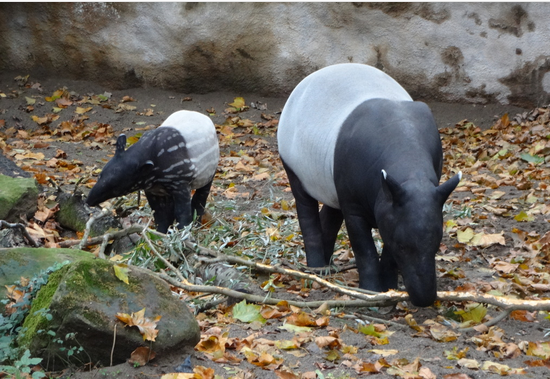 | The disrupted coloration breaks up its outline, providing camouflage by making the animal difficult to recognize against the varied terrain and dense flora of its habitat; potential predators may mistake it for a large rock, rather than prey, when it is lying down to sleep. But it does not have many predators : even leopards don't attack it : it can bite fiercely, despite not being a carnivore, and once severed the arm of a zoo attendant who had come too near to its offspring. Young tapirs of all species have brown hair with white stripes and spots, a pattern that enables them to hide effectively in the dappled light of the forest. This baby coat fades into adult coloration between four and seven months after birth. Weaning occurs between six and eight months of age, at which time the babies are nearly full-grown. |
"Malayan tapirs can live up to 30 years, both in the wild and in captivity. They reach sexual maturity around age three, but have a long gestation period (over a year, about 390–395 days), after which a single calf is born that weighs around 6.8 kg (15 lb).
"The tapir moves slowly through the forest and pausing often to eat and note the scents left behind by other tapirs in the area. It can run quickly when threatened or frightened, and if forced to fight can defend itself with its strong jaws and sharp teeth. Malayan tapirs communicate with high-pitched squeaks and whistles. They usually prefer to live near water and often bathe and swim, and they are also able to climb steep slopes.
Thailand supports one of the most comprehensive systems of protected areas in Soutast Asia. Over 200 National Parks, Marine National Parks, Wildlife Sanctuaries and Non-hunting areas cover 17% of land area (1999). Almost all-remaining intact forest now lies within protected areas, with mostly degraded lands outside. Since most existing Malay Tapir habitat is already protected, the future for conservation of the species in Thailand is quite positive. In Thailand, Tapirus indicus is recorded from forest areas in the west and south of the country (1988), including transboundary forest areas in border areas, and large isolated forest remnants. The transboundary forests represent the most extensive, contiguous habitats for large mammals left in the country (1999). They include the Western Forest Complex (Thai-Myanmar border), which includes 12 protected areas, and covers over 18,730 km2 including both dry and wet forests, and the Kaeng Krachan/Chumpol complex which covers 4,373 km2, mostly wet evergreen forest on the Thai-Myanmar border.
"While the Thai-Myanmar [ŧapir] population apparently remains stable, it is fragmented with many subpopulations often numbering less than 15 individuals which are not viable populations for the long term. Therefore, Thai populations are fragile with most subpopulations are unlikely to reach more than 50-100 individuals at the most. The smaller fragmented populations with only 10-15 individuals are left with no chance of linking up to other protected areas and suitable habitats. This is not genetically sustainable, but management intervention (e.g. moving individuals to supplement new genes) can suppress the risk of inbreeding. To date, no reliable population estimate exists for the Thailand/Myanmar population, although it is anticipated to be less than 250 adult individuals. Therefore, the long-term survival of Malay Tapirs in Thailand seems to be dependent primarily on proper meta-population management.
In the drama ....
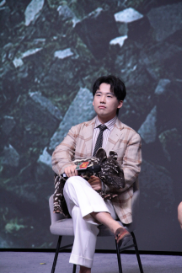 Guo Qilin at press conference, holding a toy baby tapir. Guo Qilin at press conference, holding a toy baby tapir. | 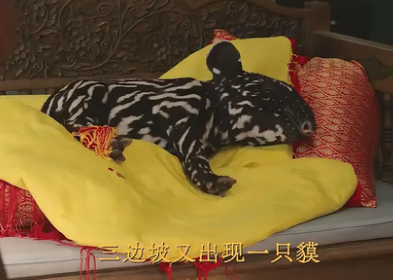 Shen Xing found a baby tapir in the forest, and was immediately thought to attract luck. (Episode 8 around 19:22) Shen Xing found a baby tapir in the forest, and was immediately thought to attract luck. (Episode 8 around 19:22)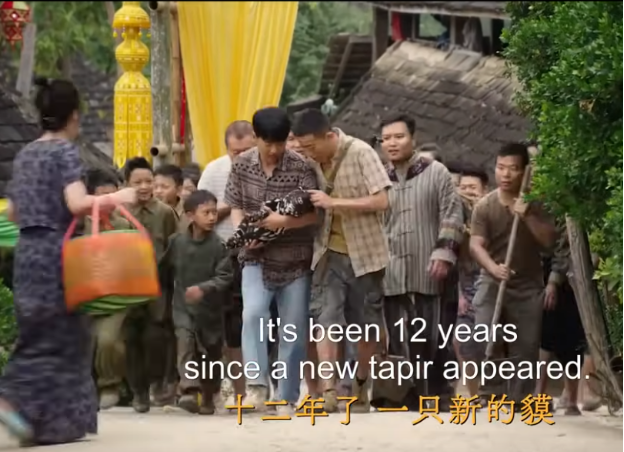 |
At the wedding in ep.6, Ai Suo had mentioned that "the tapir that was given to Banlong [who held sway over the restricted part of the Trilateral slopes] has grown old. It's time to bring i back home." Before the tapir was carried to the wedding in a cage, presumably to be released in the wild later.  |
8. Alphabetical List of Characters |
 Below : Numbers in brackets refer to the description in the Illustrated List of characters by order of appearance. (The numbers are clickable for link in relevant sub-sections of Section 9)
Below : Numbers in brackets refer to the description in the Illustrated List of characters by order of appearance. (The numbers are clickable for link in relevant sub-sections of Section 9)
| A | [31] Aden, the son of Butcher Tisa [23] Ai Suo , sheriff of Mongnawng and cattle traffick route boss [7] Ang Tun, car repair shop owner and foreign alcohol trafficker for Uncle Cai |
| B | [6] Ba Zi, Ruthless tri-state businessman, money lender, fond of pineapples [21] the Bhikkhu monks |
| C | [11] Uncle Cai, To-pan boss of alcohol and cigarette smuggling [25] "Cha Po" / Qia Po, secretary of Ukamaha from the Buddhist temple, “junior brother” of Ma Lanian [39] Chen Hao, President of the Xianglong Chamber of Commerce in the "kingdom of Laza", uncle of Mao Ba. [40] Chen Jie, Chen Hao’s sister, Mao Ba’s mother, involved in various businesses [34] Chuan Bin /“Zhou Bin”, foreman of logging camp, employee of Chen Hao [41] "Cleaver" / Xiaocai dao, Mr Cai's other driver [36] "Cross River Dragon"/Guo Jiang Long, head of Sunkong logging camp [43] "Cui Jie"/Liu Jincui, KTV manager |
| D | [9] Dan Tuo, Uncle Cai’s right-hand man [19] De Cha, Gem Market gem cutting store owner [15] Duan Si, foreman at the Wu Haishan mine [56] Dwarf assassin, in a nightly murder attempt against Uncle Cai |
| G | [12] Ga Gun, employee in the warehouse [20] Gan Ting, rival foreman who replaced Duan Si as supervisor of the mine [3] Guo Jianmin / Guo Limin, Shen Xing's roommate, staff worker at the Casino [36] Guo Jiang Long/"Cross River Dragon", head of Sunkong logging camp |
| J | [50] Jason Li, businessman who wanted to take over the Century casino [51] Jin Long ge, a "VIP gambler" from abroad who annoyed Jason Li [22] Jing Gang Ge (King Kong), Wang Anquan's nemesis [24] Jue Xintun, police officer and taxi driver in Monung [57] Justin, a teaching volunteer for an international charity organization. |
| L | [27] Lan Bo, captain of the orphan squad ensuring Monawng security, raised by Ai Suo [47] Lei Ming, a goon sent by Jason Li to make trouble at the Century casino [38] Lao Li, lumberjack slave [30] Liang laoban, a pig farmer supplier of live pigs to butcher Tisa [43] Liu Jincui, "Cui Jie" KTV manager [63] Long Yulan, drug lord of the mountain poppy fields [64] Luan Basong, the mythical power player from Kinchamba casino |
| M | [4] Uncle Ma (employee of Shen Jiandong) [26] Ma Lanian, Ai Suo's wife [46] Mao, Xia Wenjing's subordinate in the Blue-King casino [8] Mao Ba, employee of Mr.Cai on the alcohol routes [33] Mao Pan, son of Chen Jie, a ruthless and ambitious young criminal [28] Mao Pi, the contractor hired by Tisa to build a cold storage unit [42] Brother Ming, KTV owner dealing in mountain goods and matchmaking [37] Mu Yaozi /"Wood Kidney" conqueror of Sunkong logging camp [59] The minesweeper old, bearded granddad living next to Shen Xing |
| N | [45] Nie Wenjing /“Xia Wenjing” singer of Jingyun dagu at Mr.Cai's birthday |
| Q | [25] Qia Po / “Chapo”, secretary of Ukamaha from the Buddhist temple, “junior brother” of Ma Lanian |
| R | [49] Rong Jie "Sister Rong", a celebrity backed by Jason Li |
| S | [1] Shen Xing, 22 years old young adventurous construction worker from China [2] Shen Jiandong , Shen Xing's uncle, building a hotel in Monung [32] Si Tuan /“Xituan”, illegitimate son of Ai Suo, youngest of orphan squad kids [17] Sun Shan, crazy emerald fortune seeker on the Gem Market [47] Suo Langgong, Yan Baimei's assistant [14] Suo Wen (mute alcohol route runner?) [61] Su Su, the owner of the tattoo shop |
| T | [5] Ti Pan, a middleman [29] Tisa, butcher and pig slaughterhouse owner in Monung |
| V | [54] Villager, dad of a girl sold into "brides trade", who hated Lin Jincui [55] Villager's daughter who got hurt in the "brides trade" |
| W | [16] Wang Anquan, Gem market scammer and jack of all trades [37] "Wood Kidney"/Mu Yaozi conqueror of Sunkong logging camp [58] Wu Meng, the local friend and helper of Justin [18] Wu Haishan, Gem Market lord and mine owner |
| X | [10] Xi Gou, spiky rusty haired cousin of Mr Cai’s defunct wife who had been family for Mr Cai since “Scrag” was little [45] “Xia Wenjing” / Nie Wenjing singer of Jingyun dagu at Mr.Cai's birthday [41] Xiaocai dao /"Cleaver", Mr Cai's other driver [52] Xiao Tian, a reporter doing a feature about the gambling dens of the Slopes [60] Xiao Zhou, Justin’s colleague at an international charity organization. [32] “Xituan” /Si Tuan , illegitimate son of Ai Suo, youngest of orphan squad kids |
| Y | [44] Yan Baimei, white haired casino guy [13] You Deng, the accountant at Mr Cai’s alcohol warehouse |
| Z | [62] Zhao Ziying, Su Su's half-sister [51] ZhiZhiMin, Liu Jincui's accountant [34] “Zhou Bin” / Chuan Bin, foreman of logging camp, employee of Chen Hao |
ITINERARY MAP OF THE ADVENTURE (Source)
9. Characters by order of appearance(Construction work and loan sharks, episode 1) |
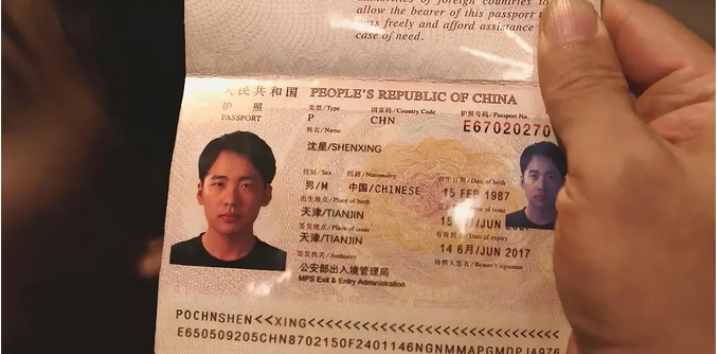 Note : Pictures are from MDL, Weibo, Baidu, Douban, dramawiki or other (linked to sources) or my screenshots from episode.
Note : Pictures are from MDL, Weibo, Baidu, Douban, dramawiki or other (linked to sources) or my screenshots from episode.
| Character picture | Character description | Actor / Actress cast for the role | ||
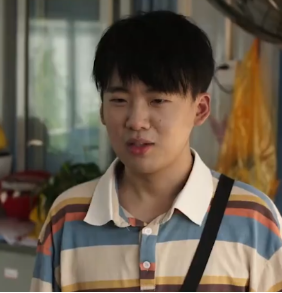 | [1] Shěn Xīng, 沈星 22 years old from China who came unexpectedly to work under his uncle, on the Monung Xinhao hotel project in the south-east Asian country, "Federal Republic of Bomo" beginning September 2008. He learned "the ropes" before Chinese New Year (2009-01-26) when the workers were planning to go on home leave. After the cliffhanger end of the first episode, Shen Xing found himself conscripted by a gang for 660 journeys of "supplying water" to pay his debts. |
| ||
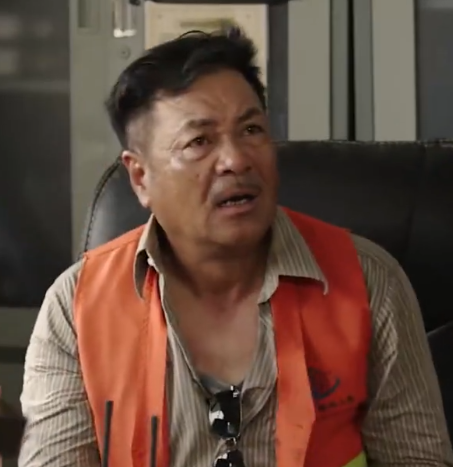 | [2] Shěn Jiàndōng, 沈建东 Shen Xing's uncle, chief engineer of the construction site but beset by payment defaults that jeopardized the project. He did not want Shen Xing to drop out of technical school and not go to universiy He tried to find money lenders and got abducted, causing his nephew to shoulder all responsibilities and go looking for him. |
| ||
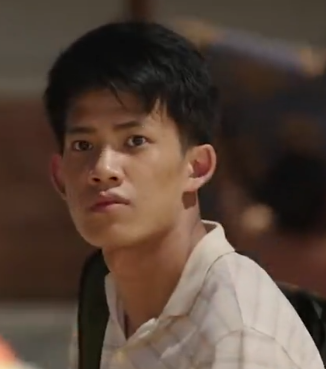 | [3] Guō Lìmín, 郭立民 A co-worker and roommate of Shen Xing, on Shen Jiandong's construction site. Guo Limin was friendly but needed to work as a waiter in the Monung Casino. His shifting role in the drama is best explained by the actor in his farewell message. |
| ||
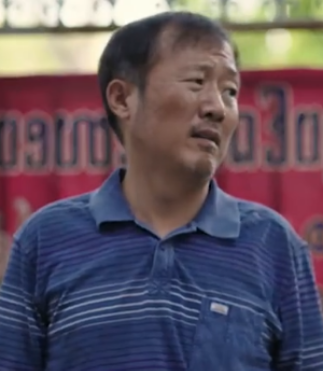 | [4] Uncle Ma /Mǎ shū 马叔 Old friend of Shen family and engineer, asked by Shen Jiandong to keep Shen Xing out of trouble and "learn the trade". |
Although there are several actors by that name, and Baidu or other lists didn't made clear which one it was, I'd wager it is this one, because he also played in 2022 Reset, and in several dramas that have similar vibes to "Escape" + looks are similar. | ||
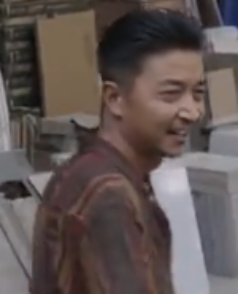 | [5] Tí Pān, 提潘 middleman Shen Xing first met him when he was collecting raw materials for the construction site, with Uncle Ma. |
| ||
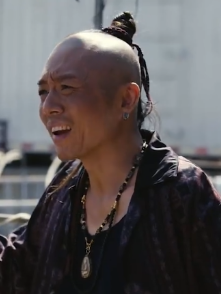 | [6] Áng Tūn 昂吞 Car repair shop owner in Kyu-Lawn ( 大曲林 in Chinese) and foreign alcohol trafficker for Uncle Cai. He scammed Cai, and cooked up a plan to get rid of those who could expose him. |
| ||
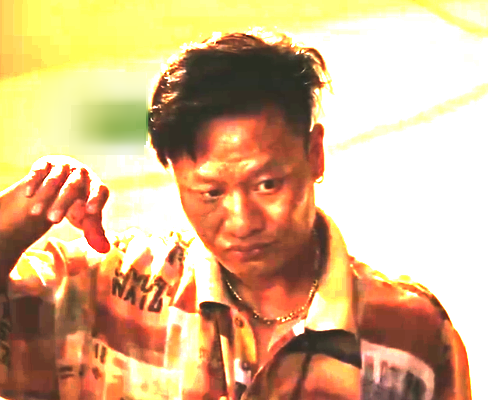 | [7] Bàzǐ gē 坝子哥 A fruit businessman who also engaged in private lending business. Ti Pan brought Shen Xin to sign a contract for 1.2 million (so he could pay the workers at the construction site). Bazi spoke some French and some Chinese and was very scary. He also posed as a "human trafficker" (or rather "illegal migration agent") in ep.2. |
| ||
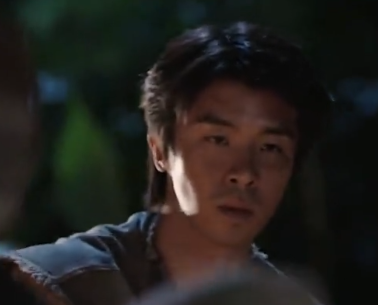 | [8] Mào Bā 貌巴 [Maung Ba] Employee of Mr.Cai on the alcohol routes, young man, married with a child, he was Dan Tuo's biological brother. He appears again in ep.2 in flashback to make clear why Ang Tuo did what he did. |
He appeared in 7+ dramas since 2019, according to Douban, in different genres: patriotic like 7 parts movie-drama 2019 My People, My Country, or xianxia-xuanhuan 2024 Sword and Fairy 4. | ||
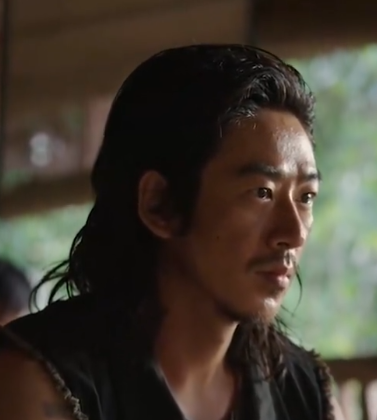 | [9] Dàn Tùo 但拓 Uncle Cai’s right-hand man. With time, he was going to call Shen Xing 弟 [Dì] i.e. "younger brother", and Shen Xing would acknowledge him as 哥 [Gē] i.e. elder brother (ep.10). |
| ||
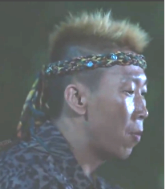 | [10] Xì gǒu ("Scrag") 细狗 spiky rusty haired cousin of Mr Cai’s defunct wife who had been family for Mr Cai since “Scrag” was little |
| ||
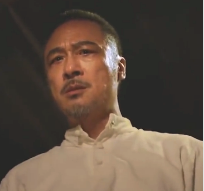 | [11] Uncle Cai (Cāi shū) 猜叔 To-Pan boss of alcohol and cigarette smuggling. A Buddhist, but a ruthless gang leader who knew how to get loyal followers. In the first episode, he was careful about revenge, although it looked like he wanted to kill Shen Xing. Later, he would realize the potential of Shen Xing and let him be inducted into the gang brotherhood where each protected the others. He acquired Shen Xing's debt but was not particular about repayment, once Shen Xing proved he was loyal. He was also very protective of his followers, DanTuo and Scrag. In ep.3, we get to know his background as son of a medicinal herbs trader from GZ, who married the daughter of General Bobei's doctor in Bomo, after having been looking for wild lingzhi mushroom. |
|
9. Characters by order of appearance, ctd.(Supplying water, episode 2) |
Note: unless it has been fixed, uploaders "kiss" and "...cool" have a glitch, so you get a repeat of episode 1 instead of episode 2. But it is just delay : ep.2 is labeled ep.3 etc.
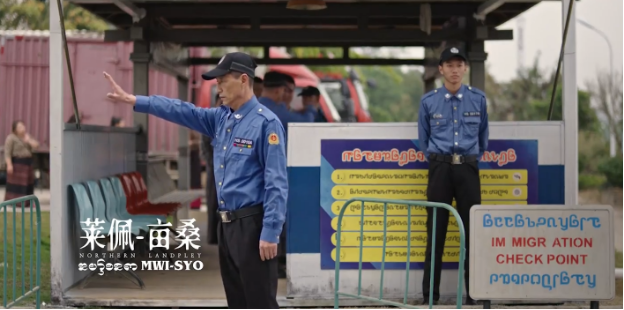 Border control of neighbor state "Northern Landpley" (aka Mo Pèi 茉佩) , Mwi-Syo (亩桑) station, before the bridge to "Federal republic of Bómó“ 勃磨 , where the towns of Mónòng 磨弄 , Kyu-Lawn (aka Dà Qū Lín 大曲林), the district of Mopon (Mópén 磨盆) where Uncle Cai's warehouse was hid up a forested hill, and the gang strongholds To-Pan (aka Dábān 达班), Monawng, etc, were rooted.
Border control of neighbor state "Northern Landpley" (aka Mo Pèi 茉佩) , Mwi-Syo (亩桑) station, before the bridge to "Federal republic of Bómó“ 勃磨 , where the towns of Mónòng 磨弄 , Kyu-Lawn (aka Dà Qū Lín 大曲林), the district of Mopon (Mópén 磨盆) where Uncle Cai's warehouse was hid up a forested hill, and the gang strongholds To-Pan (aka Dábān 达班), Monawng, etc, were rooted.
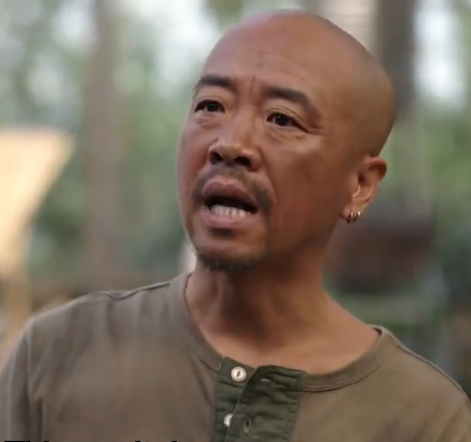 | 12. Gǎ Gǔn, 尕衮 employee in Mr Cai's hidden warehouse in Mopon. His "only job" was checking the goods at the warehouse, so he was "very thorough". |
| ||
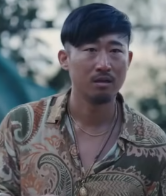 | 13. You Deng, 油灯 "Oil Lamp", the accountant at Mr Cai’s alcohol warehouse. Being from Landpley, he spoke several languages. |
| ||
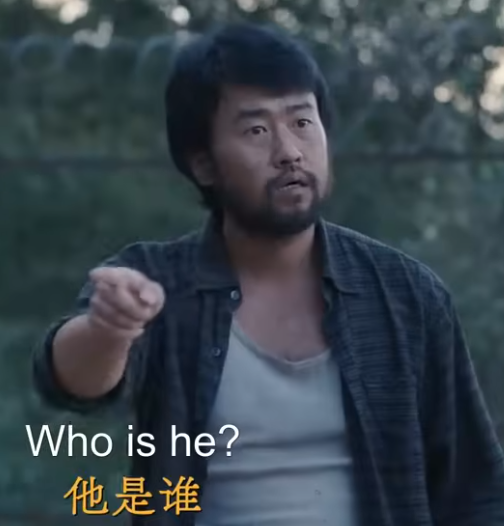 | 14. Suō Wēn 梭温 The mute driver doing the deliveries between the warehouse and the moutain drug lords. |
|
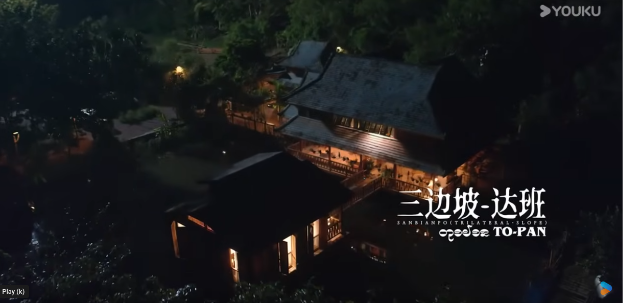
9. Characters by order of appearance, ctd.(Mines and gems, episodes 3-5) |
| Sample of the Episode title chapter poster and of the intro animation (My GIF from episode, linked) : Shen Xing drove to the Mokok (Mókuàng 磨矿) gem mine and gem market owned by jade and gems trader Wu Haishan. He was told to drive two people who brought puppets to perform Chinese opera! -- GIF of the mine from an article. |  |
(While witnessing a brawl we learn why the country is called Federal republic of Bomo : two rival tribes, the Bo and the Mo, live there, so the country has two regions : Bokang and Mokang.)
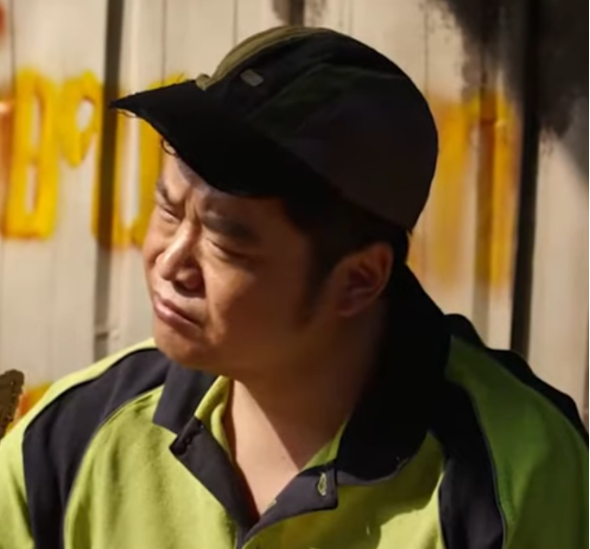 | [15] Duàn sì 段四 Supervisor of the Haishan Mine, who worked for Wu Haishan. From the Mo tribe, he was in constant rivalry with Gan Ting who accused him of bullying the Bo tribes people. He locked a child in the mine shaft where the boy had fled to, and retrieved a large ruby ("pigeon blood gem") ingested by another. |
| ||
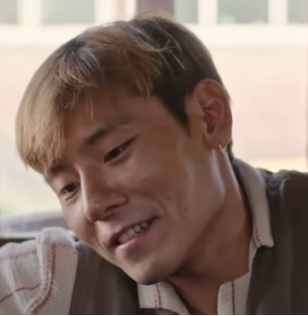 | [16] Wáng ānquán , 王安全 Gem market scammer and jack of all trades. He was "reliable", even as "chip stacker" although he would betray his associates and patrons with no qualms. |
| ||
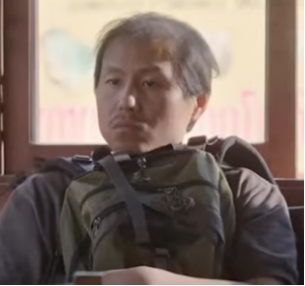 | [17] Sūn Shān, 孙山 Chinese fortune seeker on the Gem Market who traded a precious watch for money to purchase a big uncut emerald, but was cheated because Wang Anquan had given him fake money. |
| ||
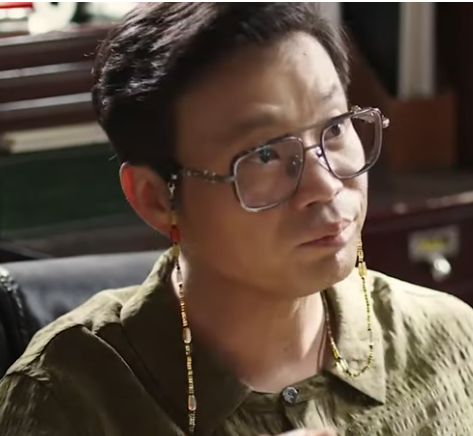 | [18] Wú Hǎishān 吴海山 Chinese owner of the gem mine and of the jade shop on the Gem market where he was "rotating committee member",also member of the "Xianlong Chamber of Commerce". He used clear lenses for his glasses, with a bejeweled chain, to mask his missing eye, and was a sort of scholar in ancient superstitious texts about dreams interpretation. |
| ||
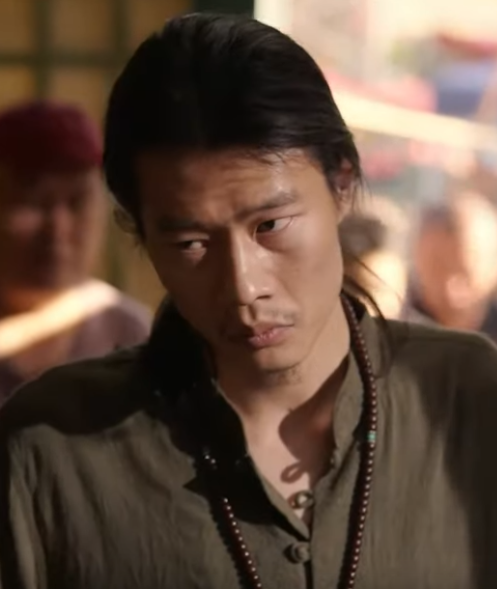 | [19] Dé Chá 德查 Gem cutter store owner on the Gem market. |
He appeared in 8 movies and 4+ dramas since 2020. | ||
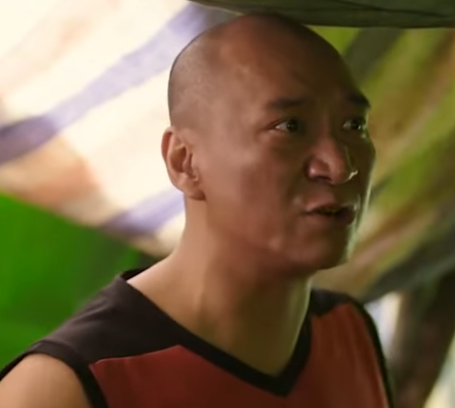 | [20] Gān Tíng 甘廷 Rival of Duan Si from the Bo tribe, who replaced him as supervisor. He guided Shen Xing on the mine grounds after he was pushed inside by a crowd and saw them panning and washing the sand. He let Shen Xing try his hand at gem mining in the scorching heat, and Shen Xing found a small ruby in a shallow mud puddle. Gan Ting also secretly tried to help the kid in the shaft who had hid another gem. Gan Ting handed that gem over to Wu Haishang... |
| ||
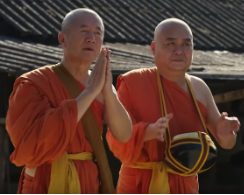 | [21] The Bhikkhu monks They saw Shen Xing (who has disguised as a monk) giving his food to some poor and sick people in the street, and saluted him, helping him later through a checkpoint. | Not credited on the drama pages Note : Theravāda is the official religion of Sri Lanka, Myanmar, and Cambodia, and the main dominant Buddhist variant found in Laos and Thailand. The Bhikkhu are the beggar monks who live on alms, following the example of the Gautama Buddha. | ||
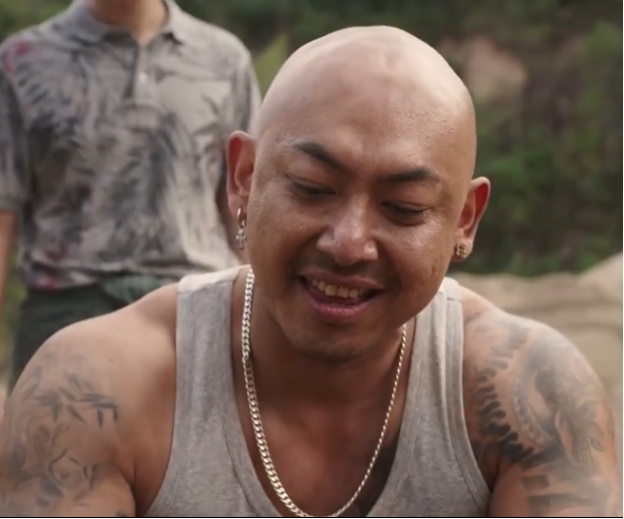 | [22] Jīngāng 金刚 The scary muscular thug “King Kong", was connected to Wang Anquan in shady deals. He tried to hunt him down and next, went after Shen Xing. He also punished Sun Shan. | Not credited on the drama pages |
 GIF excerpt from Weibo clip - Gem Market, Bhikkhus, Tapir.
GIF excerpt from Weibo clip - Gem Market, Bhikkhus, Tapir.
 | 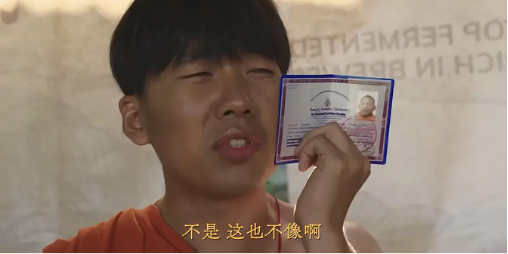 Shen Xing used a Bhikkhu Buddhist monk's ID card to cross the checkpoint, but he also ought to have had a monk certificate ! Shen Xing used a Bhikkhu Buddhist monk's ID card to cross the checkpoint, but he also ought to have had a monk certificate ! |
9. Characters by order of appearance, ctd.(Buddhism and cattle roads, episodes 6-8) |
 My GIF excerpt from start of episode 6 : Mr Cai and Ai Suo released fish ; releasing trapped or caged animals, birds, fish, etc, is supposed to accrue merits towards a good karma, for Buddhists.
My GIF excerpt from start of episode 6 : Mr Cai and Ai Suo released fish ; releasing trapped or caged animals, birds, fish, etc, is supposed to accrue merits towards a good karma, for Buddhists.
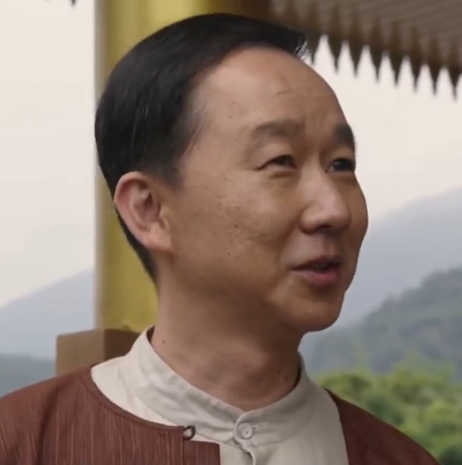 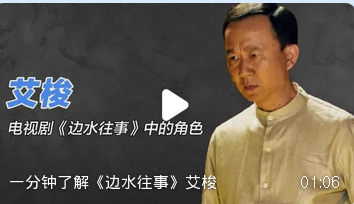 | [23] Ài Suō 艾梭 He was the "sheriff of Sānbiānpō 三邊坡 Maniú 麻牛 (aka Mongnawng) town". He had built the nearby pagoda for Chan Master Wūkǎmǎhā (乌卡玛哈), whom his "wife and brother" worked for. Ai Suo often went there for meditation. Despite being a devout Buddhist, Ai Suo was involved in cattle smuggling ! Mr. Cai suggested that it might be more profitable to smuggle frozen meat, but Ai Suo, on his brother's advice, was not ready to share roads in exchange for freezer trucks... |
Spoiler tag : In the end, after the fire, Cai Shu found out that Ai Suo had given him a fake gold Buddha statue as "apology" for reneging on the joint cattle and water supply roads. With such evidence that Ai Suo was insincere even to core faith, Cai Shu had Naw Kham eliminate Ai Suo. | ||
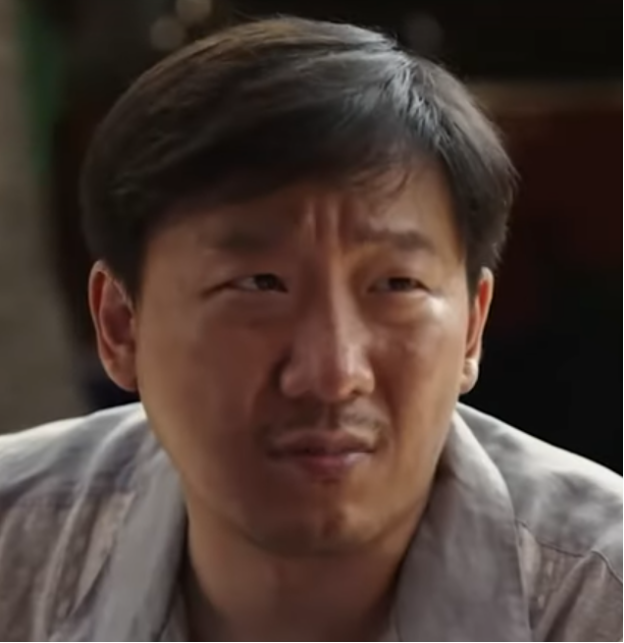 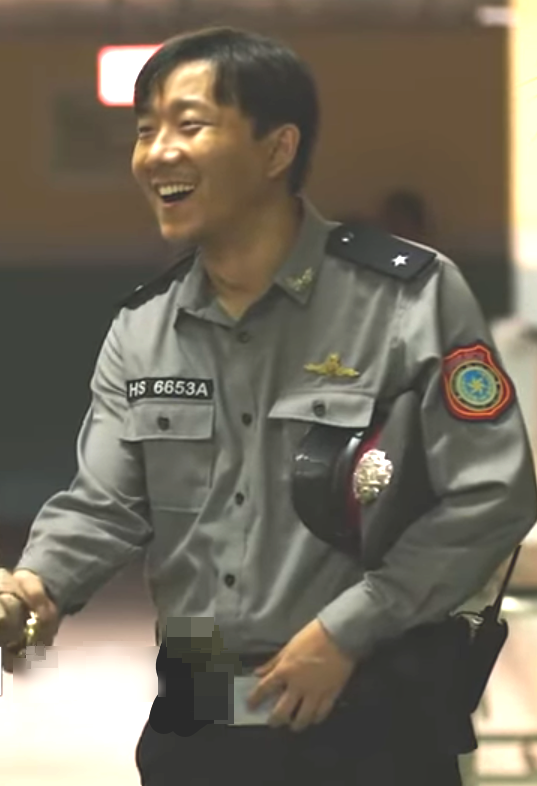 | 24] Jué Xīntūn 觉辛吞 A plainclothes police officer in Monung, doubling as taxi driver after hours, he was an acquaintance of Shen Jiandong whom Shen Xing had contacted through his uncle's leftover phone that Shen Xing had found while searching the construction site office. He gave Shen Xing valuable tips about the situation and his uncle's whereabouts. He only appeared in uniform in ep.10 at the hospital. |
| ||
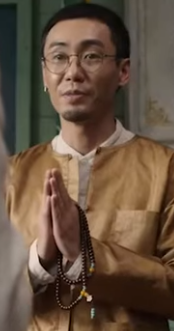 | [25] Qià Pò / “Chapo”, 恰珀 Secretary of Ukamaha from the Buddhist temple, “junior brother” of Ma Lanian (in the sect brother and sisterhood). He was not altogether transparent, more hypocritical than honest, jealous of Mr Cai, had personal ambitions, and overstepped in some matters, although he managed to keep his head above troubles he stirred. |
| ||
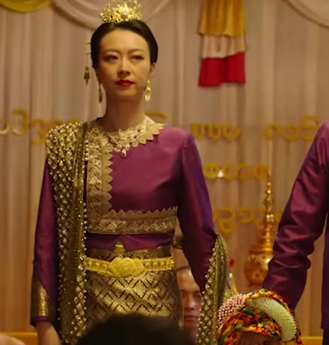  | [26] Mǎ Lānián, 玛拉年 She was celebrating her 12th wedding anniversary with Ai Suo in episode 6. She belonged to the Chan/Zen sect Aisuo and Chapo also were inducted in, so it was probably a political marriage. She was at the same time having improper dealings with Chapo. When it became too obvious, and she incurred Aisuo's wrath, she was dealt with, ruthlessly, as expected. |
| ||
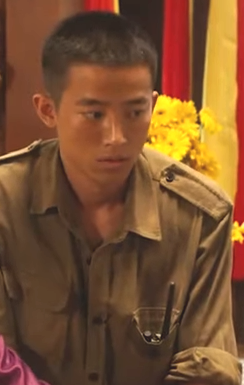 | [27] Lán Bō 兰波 Captain of the orphan squad ensuring Monawng security, raised by Ai Suo. He became a friend of Shen Xing. |
| ||
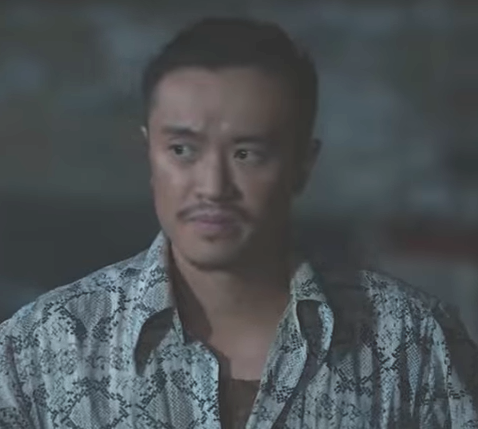 | [28] Māo Pí 猫皮 Fun name, means "cat skin"! The contracted operator needed to build the cold storage for Tisa. His men did not know how to operate the excavators, so when Shen Xing and Dan Tuo snuck in to check what was going on, he hired the one who could use the machines. In later episodes, he turned out to be bloodthirsty. | Not credited in the drama pages Spoiler tag : He almost caught Shen Xing stealing documents of the penalty contracts in his office, when he returned late from a drunk binge (funny scene). He also recognized Shen Xing at Ai Suo's residence, where Mao Pi had accompanied butcher Tisa. He chased him into the woods, but was chased away by Lan Bo, shortly before Shen Xing found the trapped and wounded baby tapir. | ||
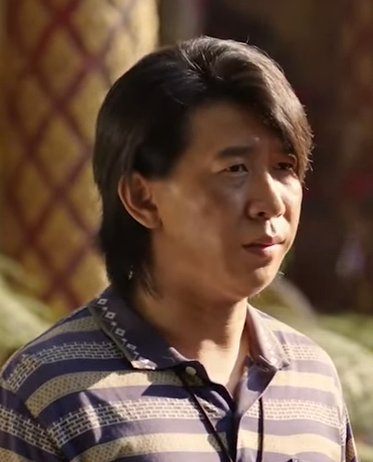 | [29] Tisa [Dì sà] 蒂萨 A butcher, owner of a pig slaughterhouse owner commissioned by ChaPo to build cold storage units. He featured on billboards and posters found along the roads, but had hitherto only sold fresh pig meat. He had a tragic secret, which caused the bhikkhus to shun his employee's offerings. | Not credited in the drama pages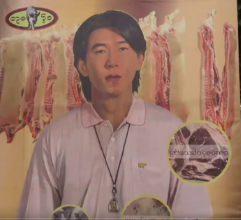 | ||
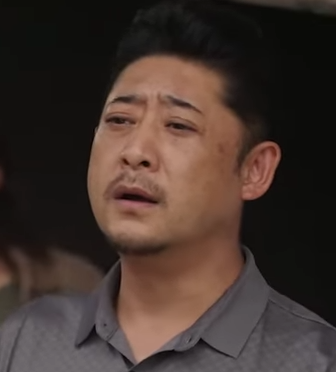 | [30] Liáng 梁 The pig farmer had only recovered one third of the money due to him by Tisa who had suddenly stopped purchasing pigs, and was branching into cattle slaughter, as Shen Xing found out, posing as a fellow supplier. | Not credited in the drama pages Spoiler tag : Mr Cai figured out that ChaPo had promised Tisa a land deal in a country where the government and the temples were the primary landowners. He also suspected that Tisa was in a squeeze for some reason. But was the information enough to get the use of the cattle route that Mr Cai coveted? | ||
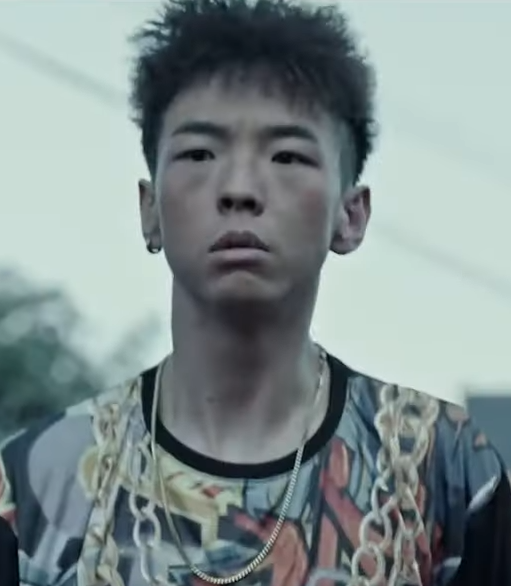  | [31] Ā Dēng 阿登 Butcher Tisa's only son "Aden", who was going to be executed for a hit-and-run over a bhikkhu in Monung, but got saved through bribery and finding a fall guy. | Not credited in the drama pages Spoiler tag : Mr Cai used Aden and his father to expose ChaPo's treachery. As agreed with butcher Tisa, he sent his son to the "safe" point where he was to be sent abroad - but the police had been tipped off and a "drug raid" caught the youngster again... | ||
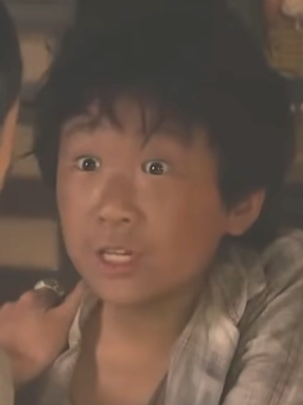 | [32] Xī Tú'áng "Xituan"/"Stuan" 西图昂 He was Ai Suo's illegitimate son, raised as one of the youngest in Ai Suo's orphan squad, and his Papa had big hopes for him, wanted to send him to school and learn foreign languages to become a businessman later. |
| ||
 | [33] Máo Pān 毛攀 Ruthless youngster, elevated as transport manager of a band of ruffian lumberjacks, to take control of the precious wood lumbering business and roads for himself and his uncle, President Chen. They tricked and kidnapped Lan Bo, Xituan and shot Suo Mintun, another kid of the orphan squad. |
| ||
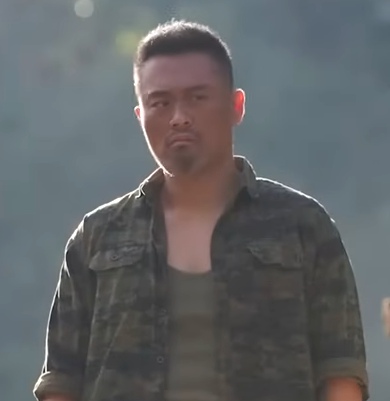 | [34] Zhōu Bīn 周槟 He was the foreman of the Nan-Bo logging camp in the Restricted zone, and a trusted employee of President Chen Hao. Spoiler: Zhou Bin was wounded in the capture of his logging camp by the rebel army, and at first believed Mao Pan had been killed -or wished him so. | Not credited in the drama pages but he is included in the Chinese Wikipedia drama page, so MDL lists:
|
9. Characters by order of appearance,ctd.(Precious wood logging camps, episodes 9-11) |

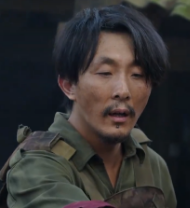 | [35] Brother of Mu Yaozi ; he went to fetch the baby tapir in the car. | Not Credited in Drama Pages | ||
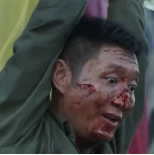 | [36] Guò Jiāng Lóng 过江龙 "Cross River Dragon", former foreman of Sunkong Logging Camp, under Banlong. Shen Xing had been instructed to give him the baby tapir in exchange for his uncle who had been a prisoner doing hard labor there. | Not Credited in Drama Pages Learn more about mahogany 桃花心木 [Táohuā xīn mù]  | ||
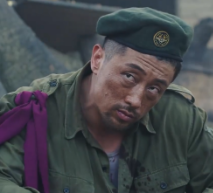 | [37] Mù Yāozi 木腰子 “Wood Kidney", conqueror of the Sunkong logging camp. Member of the Bo tribe "Purple Scarf army", a rebel faction of Banlong's soldiers, the forested hills were his ancestral home 5 years before. He was keen to recapture iritand make a deal with the government to keep it. He intended to use the captured people and lumberjacks as slave labor, including Shen Xing and his uncle, and had those who tried to escape be shot. | Not Credited in Drama Pages Learn more about wood :
| ||
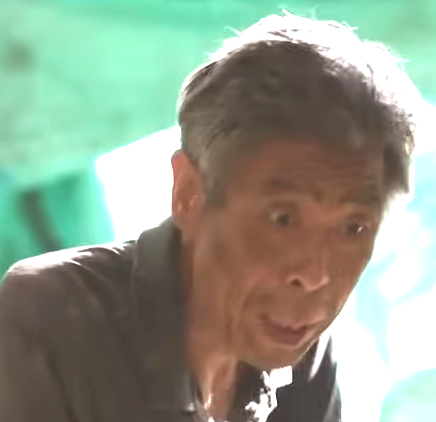 | [38] Lǎo Lǐ 老李 He had been the driver of Mao Pan and witnessed the brutality of his henchnman. He was a new friend of Shen Jiandong and hoped to be released and get back to his wife and small daughter. |
| ||
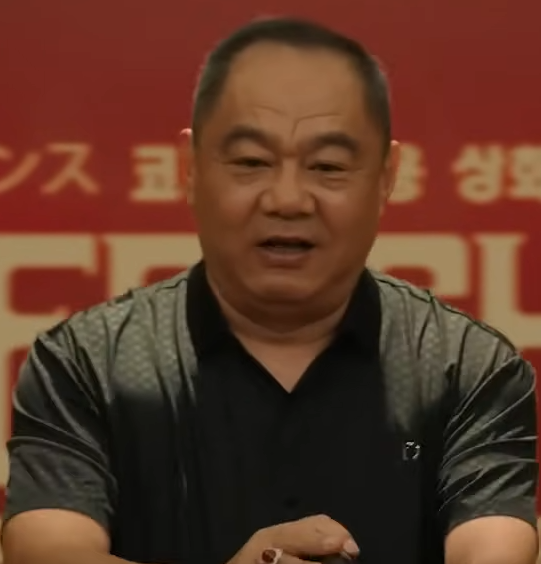 | [39] President Chén Hào 陈会长, 陈昊 President of the Xianglong ("Elephants and Dragons") Chamber of Commerce in the "kingdom of Laza", uncle of Mao Pan and brother of Chen Jie. He said he was out of the wood business for several years, but that the rebels had seized "his only mahogany yard". |
| ||
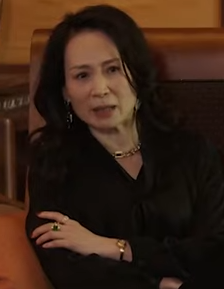 | [40] Chén Jié 陈洁 The sister of Chén Hào was in charge of the NBM medical fund (a promising business) and charity affairs ; she was determined to get her son Mao Pan out of trouble. She became instrumental in getting the government forces convinced to take action against the rebels and to rescue the kidnapped people -and her son. Fights for logging territory had caused her to be widowed and Mao Pan to be orphaned, so she was unapologetic about his bad education. |
| ||
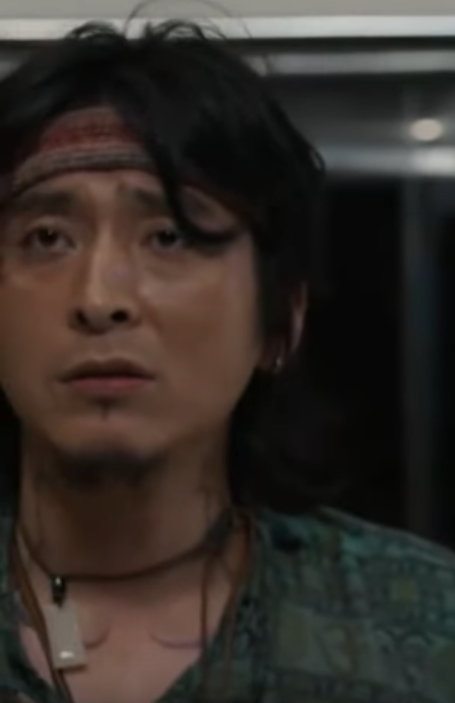 | [41] Xiǎochái dāo 小柴刀 "Cleaver" (or "hatchet") was one of Mr. Cai's bodyguards and drivers, when Dan Tuo was not available. His father was a rubber tree plantation owner. | Not Credited in Drama Pages |
9. Characters by order of appearance, ctd.(KTV, brides trafficking, casinos and debt forcing, episodes 12-17) |

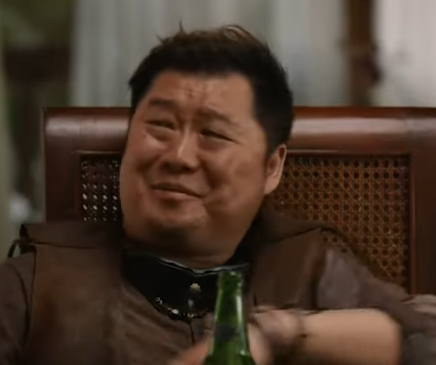 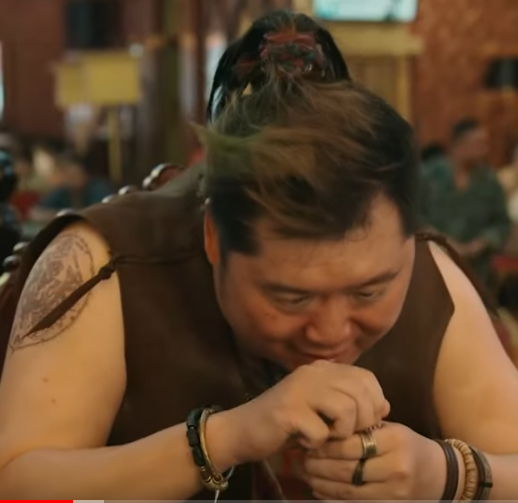 | [42] Míng gē 明哥 "Brother Ming" had broken a leg while "flying with eagles" so returned from his holiday with crutches, to have dinner with Mr.Cai. Ming was a KTV owner, who dealt in mountain goods and matchmaking ; Liu Jincui was his competitor and asked for a truce. He also was addicted to gambling and spent time in the Casino. He was among those who had chased Shen Xing into finding the tapir, and was happy that Shen Xing could help him handle a deal with Liu Jincui. |
| ||
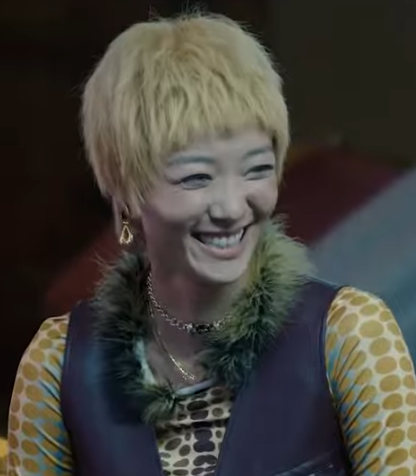 | [43] Liú Jīncuì 刘金翠 "Cui Jiě" ("sister Cui") Fearsome "Golden Green" Kyu-Lawn KTV and brothel manageress who "liked pretty boys", billiards, and took pride in not forcing her employees and get them educated in languages and maths. She had backing from President Chen and wanted to cut a deal with her ex associate, Brother Ming, against whom a fight had led to one of Ming's men losing an eye. She first challenged Shen Xing to a billiards game, and subsequently got to somewhat respect him when he stood up to Mao Pan to save her accountant. In episode 15 she revealed that she had been a beekeeper's daughter in the mountains, sold by her lover when she was runaway a teenager, and later resold to Ming in Mokang. Angry at her treatment, she had run away again and became a partner in the "cross-border bride" business, and a KTV madam. |
| ||
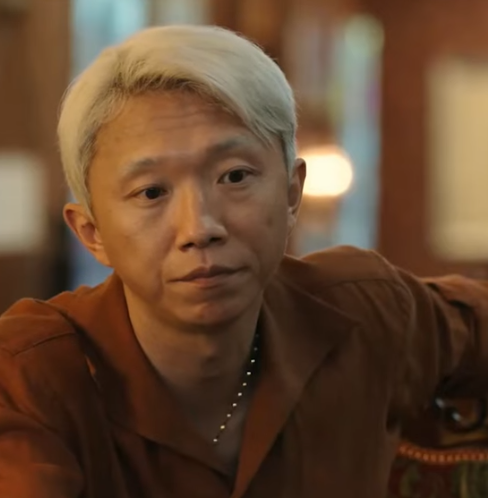 | [44] Yán Báiméi 岩白眉 Century casino manager in Monung (under Century Group and Century Hotel). He was an old friend of Mr Cai since their war days together (Yan had been wounded, so his health and voice were weak). He was facing defamation after a gambler died from a drug overdose, staged by someone whom he thought to be Jason Li from nearby country Landpley, who aimed at taking over the Century casino. Yan Baimei was in charge of 3 gambling halls out of 5; Mr. Cai agreed to invest instead of a loan, and asked the two casino managers to explain the business to Shen Xing. |
Note: In the drama, "Bómó" 勃磨 is based on Myanmar ; "Kamon" 卡蒙 [kǎméng] and "Landpley" ( 茉佩 Mòpèi) are likely based on Thailand (+see below, the note about "Kinchamba" 金占芭). | ||
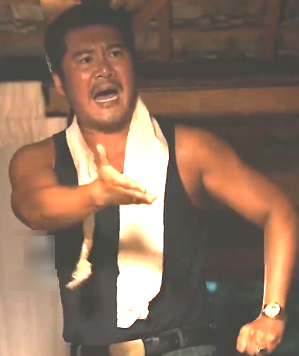 | [45] Niè Wénjìng 聂文镜 [] "Xia" Wenjing sang an epic take on Jingyun dagu (*) for Mr. Cai's birthday. He was in charge of the small Blue-King casino in Topan, on Mr.Cai's grounds, which needed refurbishing, but lacked funds - Mr Cai decided to postpone in view of his stake in Century casino and ask Shen Xing to take charge of that business instead of doing water supply. As a perk, he got a car, too! But when Shen Xing came on Mr.Cai's behalf to collect the Blue-King rent, XWJ said he needed time. |
| ||
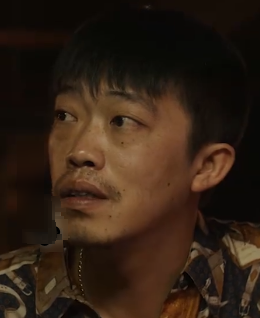 | [46] Mao Xia Wenjing's subordinate in the Blue-King Casino of Topan. He led Shen Xing to the torture chamber where the debt collectors "took care" of those who could not pay up front. The casino was using "chip stackers" like Wang Anquan, to lure the gamblers into debt! | Not Credited in Drama Pages | ||
 | [47] Suǒ Lǎnggòng 索朗贡 Yan Baimei's assistant in Century Casino of Monung. |
| ||
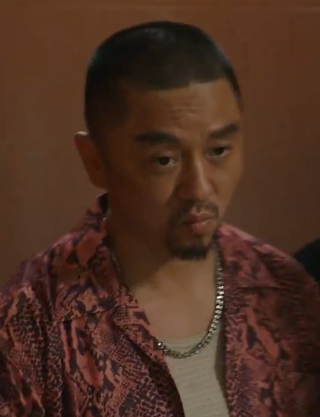 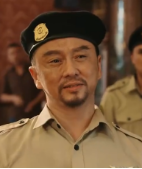 | [48] Léi Míng 雷鸣 ("thunder") On Yan Baimei's phone, at the birthday dinner, XWJ recognized the man who had spread the news about the overdose to be Lei Ming, a particularly ruthless goon he had worked with for debt-collecting in "Wō běi" 涡北. Lei Ming, sent by Jason Li to make trouble for the Century casino, still lurked in it and beat up Guo Limin. Before reappearing in uniform of Century Hotel security captain! | Not Credited in Drama Pages | ||
 | [49] Róng jiě 荣姐 Wang Anquan cultivated Mrs Rong's favor, because she was a celebrity who had come to relax in Century Hotel. She liked to gamble, but was a stone-hearted person laughing at Guo Limin's misfortune at the hands of Lei Ming. In fact, she had been invited by Jason Li who was backing her gambling. |
| ||
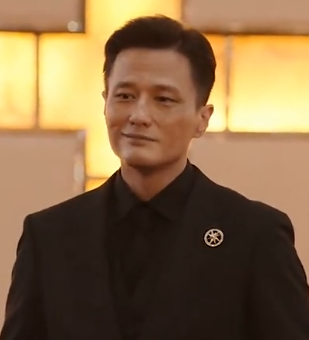 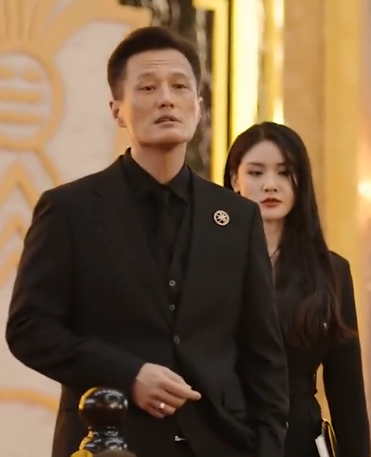 | [50] Jason Li 杰森栗 [Jiésēn lì] He forced Yan Baimei to work for him, hand over his three gambling halls in exchange for a huge down payment and a percentage on the revenue, and closed Mr Cai's two halls that Yan Baimei had just purchased on Mr Cai's behalf, to help him get full control of the casino. But the hotel having shares, that Jason Li also forced from the shareholders, it could close rooms at will, on any pretext... He always appeared with a long legged and long haired female personal assistant carrying documents at his side, and was already rebranding the "New Century Casino". |
| ||
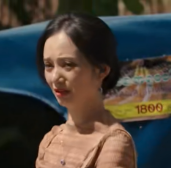 | [51] ZhiZhiMin, "Min" She was Liu Jincui's accountant who had been threatened by Mao Pan. Cui sent her away for her safety because Mao Pan's death had upset someone called "Kunpadi Shachu" (but in fact it was because president Chen's account had been exposed whenthe KTV ledger had gone missing). | Not Credited in Drama Pages |
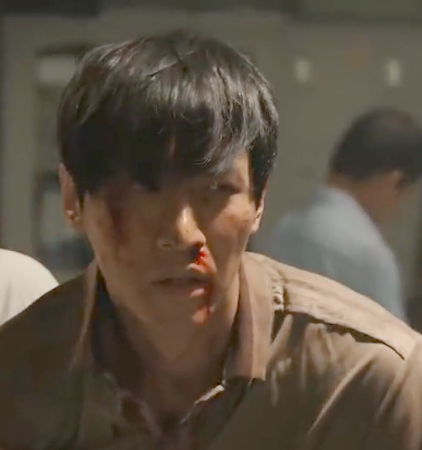 | [52] Xiǎo Tián 小田 Shen Xing had recognized him from the missing people notice that officer Jue Xintun had given to him, and had him rescued from the debt-collector's Blue-King prison, where Gao Limin had tortured him. Xiao Tian had taken secret pictures and kept a back-up which could be released... | Not Credited on Drama Pages |
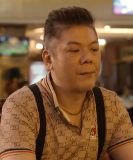 | [53] Jīn Lóng gè 金龙个 [Golden dragon] At New Century Casino, he annoyed Jason Li. A blacklisted gambler from Kamon where he owned property, he was the ex husband of Rong jie, but not quite ready to let her know he had come to enjoy his gambling addiction despite falling into the default payment trap. | Not Credited on Drama Pages |
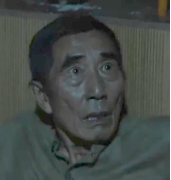 | [54] Villager Lin Jincui had Shen Xing drive her to his shack to pay him the "bride's money" he wanted to sell the girl (to support his son) . Cui took the girl away. | Not Credited on Drama Pages |
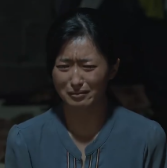 | [55] Villager's daughter Cui paid again the brides money for her, and took her away, despite she had suffered mishandling from her husband, and almost died from a bloody miscarriage before running back to her father. | Not Credited on Drama Pages |
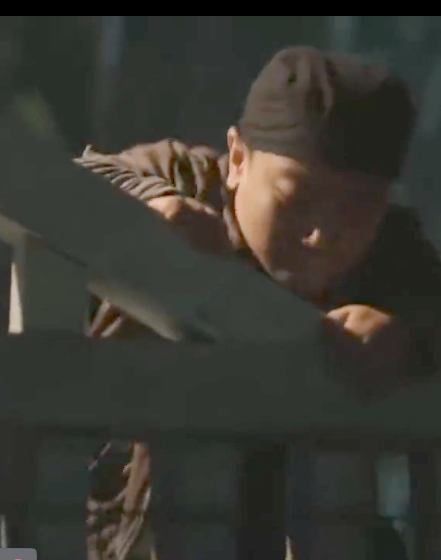 | [56] Dwarf assassin A woman begged for help at the gate of the To-pan residence, in the stormy night. She was carrying a basket on her back in which a dwarf assassin, posing as a child, was waiting for the guard to go, so he could climb over the fence.. | Not Credited on Drama Pages |
| (*) Xia Wenjing was singing in Jingyun dagu style the story of Luán Bāsōng 銮巴松 who made a fortune and founded Kinchamba casino in Triangular Slopes. Jason Li further mentioned later, that Luan Basong had a slogan in Wancai casino : "Your dream life can come true at passionate Wancai." Jason Li wanted to give the New Century Casino the slogan : "Fortune is on the turn ; one card can turn your fate". (Read more about this traditional genre of Chinese narrative singing, in the Music section) Note: "Kinchamba" (金占芭 Jīn zhàn bā) might be derived from jambu, the name in Malay for the rose apple (蓮霧, lián wù in Chinese) or Thai Chamba water apple, a fruit bearing tree which with red pear-shaped sweet-tasting fruit which also grows in Malaysia where "some forms of gambling, lotteries, casino games and horse racing, are legal and popular, but online gambling is not" and where the world's largest casino can be found : Resorts World Genting." But being located more broadly in "Landpley" the model also seems to be in Thailand. The 金 (Jīn/gold) part of the name obviously refer to the precious metal. Kinchamba was, according to Mr Cai, developed after the "Wancai" casino, by Luán Bāsōng, and made into a special administrative zone (which reminds both of the GTSEZ and of Resorts World Genting in real life.). |
Click here to get back to Table of contents The Illustrated characters list continues on p.2
Recent Discussions
-
BL Drama Lovers Club1 minute ago - American Fan
-
** Moon BAR + Starlight KTV + Moon SPA **2 minutes ago - ChunTian
-
Was Jeong Jin Man truly dead ?? YOUR THOUGHTS45 minutes ago - Anemone
-
What is this final episode?46 minutes ago - Anemone
-
Whats your favorite First/Khaotung show??49 minutes ago - fangirlmama
-
MDZS Audio Drama Links ²⁰²⁴52 minutes ago - AndriniainaJulianah
-
Male Actor Comparisons1 hour ago - Charlee
-
Yun Gil Ho and the term "Undocumented"1 hour ago - Toot
Hottest Discussions
-
♥️Count to 7000000♥️8 hours ago
-
✰ Last letter food game ✰8 hours ago
-
Change 1 letter to make a new word #28 hours ago
-
Yeah, no, guess7 hours ago
-
Kiss or Dismiss #36 hours ago
-
***Count to 100,000***5 hours ago
-
10 dramas/movies with ____? #44 hours ago


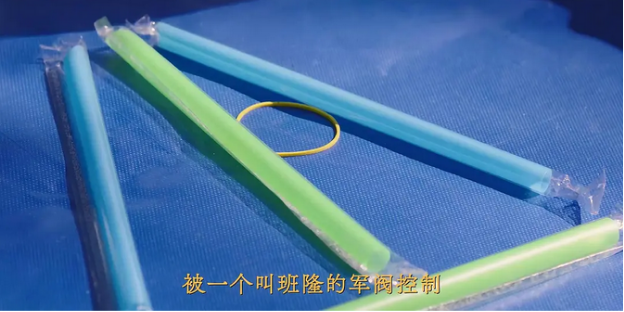
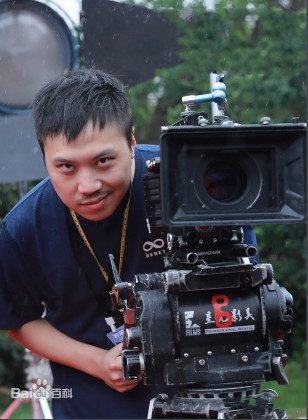

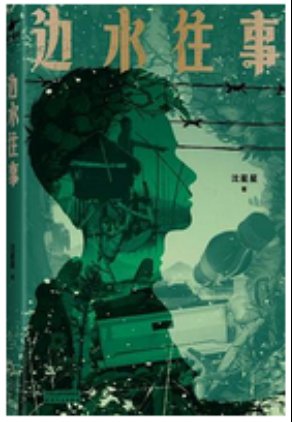
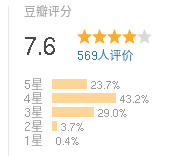
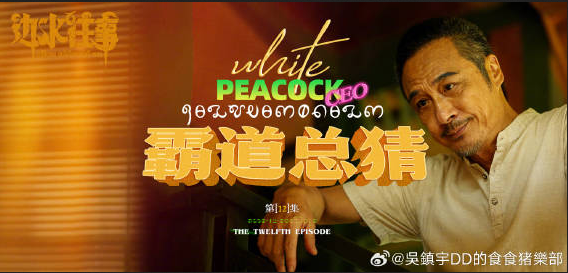

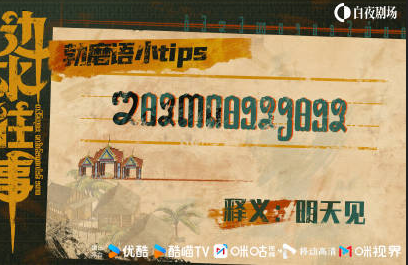
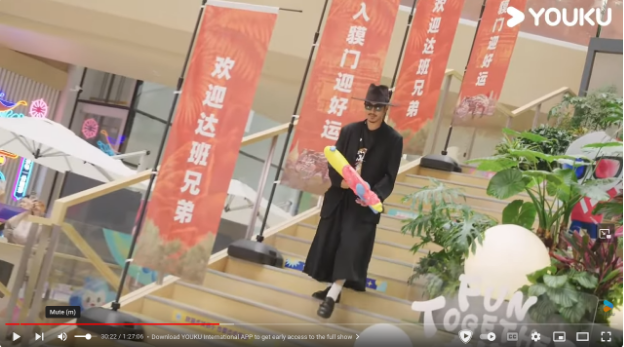

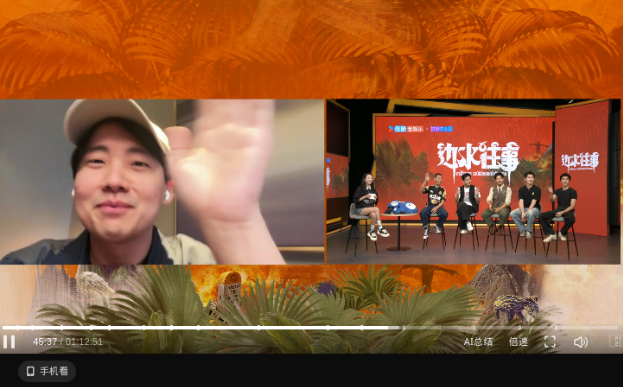
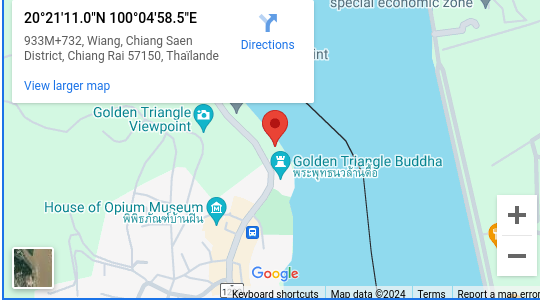





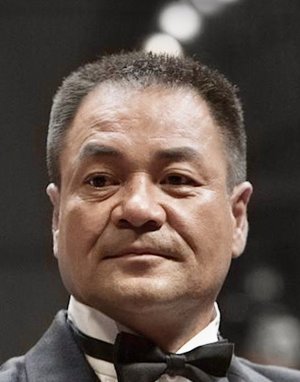
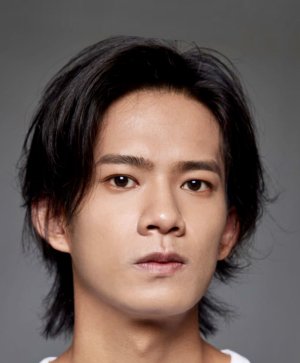
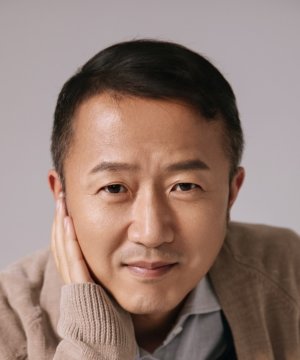
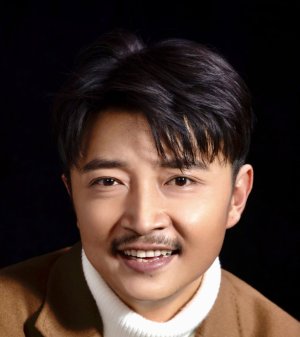
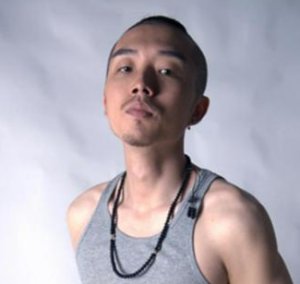
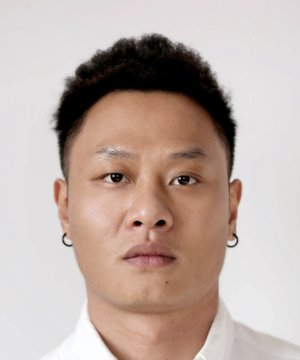

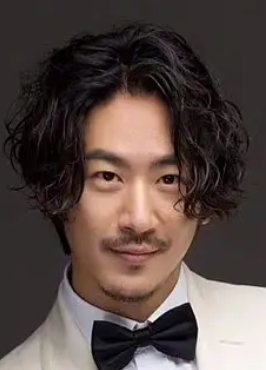

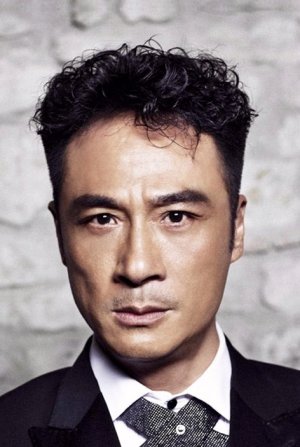
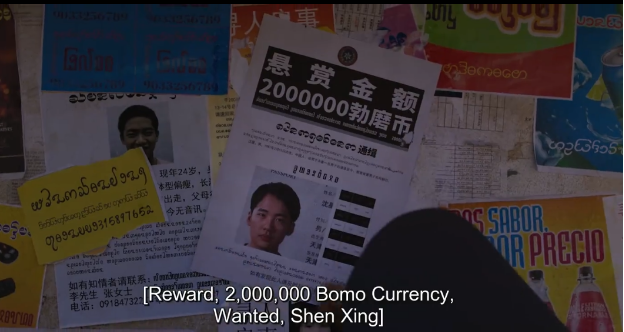
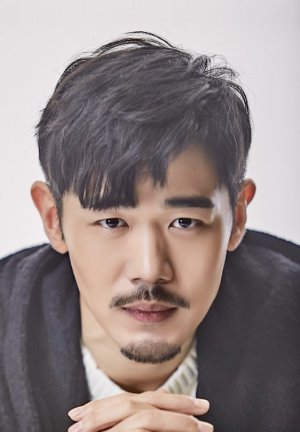


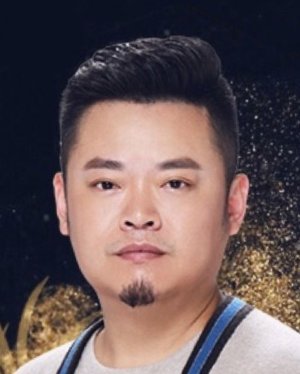
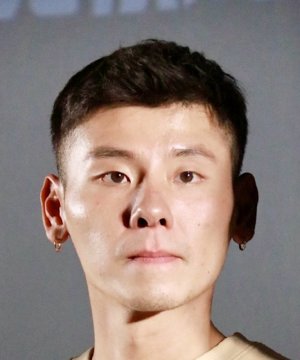
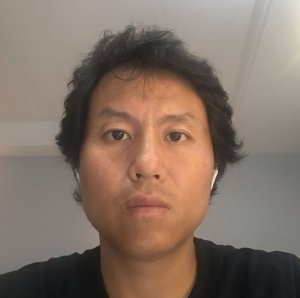

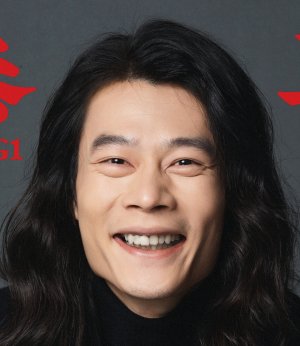
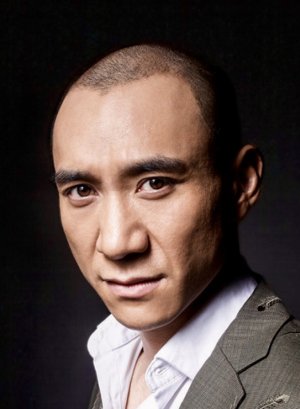
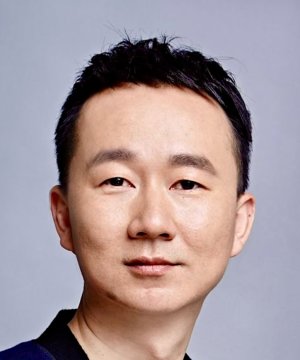
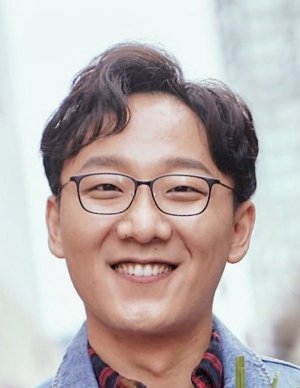
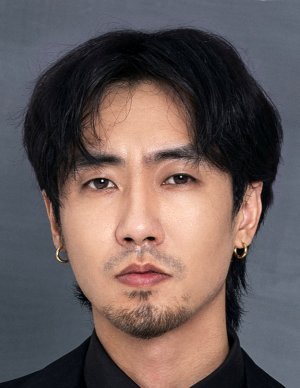

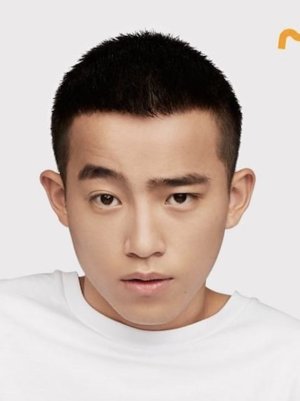
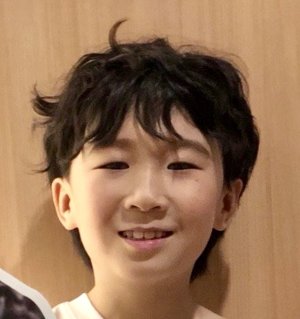
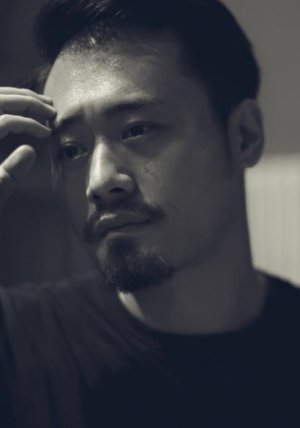
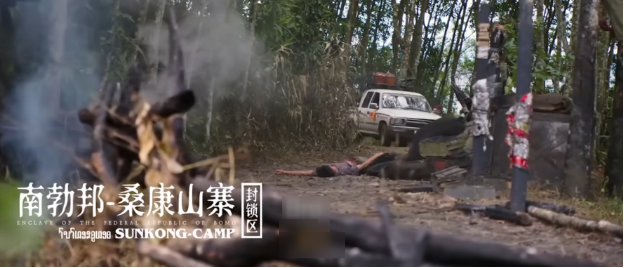
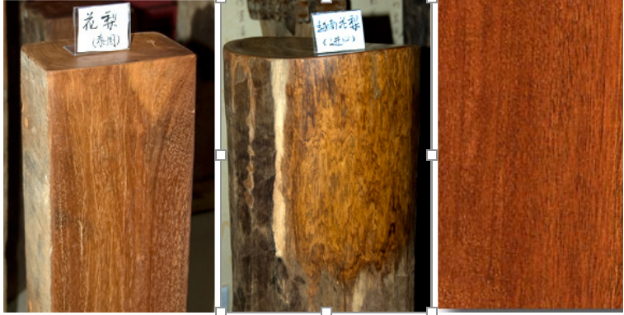 1. Huanghuali 黄花梨 rosewood from Thailand ; 2. Huali rosewood from Vietnam ; 3. Zhennan (true Nanmu 楠木) white cedar or Zinan (Nanmu) from southern regions
1. Huanghuali 黄花梨 rosewood from Thailand ; 2. Huali rosewood from Vietnam ; 3. Zhennan (true Nanmu 楠木) white cedar or Zinan (Nanmu) from southern regions